You’ve not added any courses yet!
When you find a course you like select 'Add to course compare' to compare it with up to two other courses.
- BSc (Honours) Airline and Airport Management
- Tourism and hospitality

BSc (Honours)

Airline and Airport Management
Prepare for take-off on this airline and airport management course – learning how to launch your career in this highly specialised and vibrant industry.
Everything you need to know...
What is the fee.
Home: £9,250 per year (£1,200 for placement year) International/EU: £16,655 per year (£1,200 for placement year)
How long will I study?
3 / 4 Years
Where will I study?
City campus, what are the entry requirements.
112-120 UCAS points
What is the UCAS code?
When do i start.
September 2024
Placement year available?
Course summary.
- Develop critical aviation industry skills in sustainability and pricing.
- Study marketing, digital skills, project and talent management.
- Collaborate with industry partners to work on live projects.
- Learn from industry experts and engage with aviation field trips.
- Build your professional network through our extensive links with airlines, airports and aviation agencies.
On this course you’ll learn about the technical aspects of the industry, from aviation law and regulation to safety and security management. You’ll study airlines and airports from both an operational and managerial perspective using specialist simulation software. Whether you plan to work air-side, land-side or directly with airlines, you’ll be fully prepared to hit the ground running.

Come to an open day
Find out more at our undergraduate open days. Book now for your place.
Sheffield Business School accreditation
Sheffield Business School is accredited by the Association to Advance Collegiate Schools of Business (AACSB), placing us in the top 6% of business schools globally.
Tourism subject group award
Our Tourism subject group is recognised as a Centre of Excellence by the Institute of Travel and Tourism (ITT) , the membership organisation for tourism industry professionals and educators.
Student View
Watch student Jake Forrest talk about the BSc Airline and Airport Management course at Sheffield Hallam University.
How you learn
All our courses are designed around a set of key principles based on engaging you with the world, collaborating with others, challenging you to think in new ways, and providing you with a supportive environment in which you can thrive.
Our teachers have held senior positions in airline and airport management – bringing a wealth of aviation case studies to support your learning. They’re actively involved in applied and impactful research, so you’ll get to understand the latest trends in the global aviation industry.
At every level of the course, you’ll have the opportunity to engage with the industry. Thanks to our extensive network of external partners, you’ll enhance your learning through expert guest speakers and field trips.
You learn through
- Lectures, seminars and workshops
- Field trips and site visits
- Talks and resources developed by our accrediting bodies
- Live projects with external organisations
- Independent study and group work
You’ll develop your knowledge of how the aviation industry interlinks with the environment, climate change, regulatory frameworks and the broader sustainability agenda. You’ll also develop your core business acumen in marketing, people management and finance to make sure you’re industry ready.
We believe you learn best when you engage with the industry first-hand to appreciate the complexities, challenges and rewards of working in the airline and airport management sector. In your final year you’ll apply the knowledge you’ve gained in a client-led consultancy project.
You will be supported in your learning journey towards highly skilled, graduate level employment through
- Access to our unique student support triangle to help with your personal, academic and career development.
- Access to our Skills Centre with one to ones, webinars, and online resources, where you can get help with planning and structuring your assignments.
Applied learning
Work Placements
You’ll have the opportunity to undertake a year-long work placement in between your second and third years. This gives you industry experience to prepare you for your future career – and allows you to graduate with an Applied Professional Diploma to add to your CV. For example, previous students have secured placements with Swissport and Jet2.
Live Projects
In every year of your course, you’ll have the opportunity to work on live projects to build your skills and professional experience.
Recent students have worked on developing high quality and engaging training content across all five airlines within the TUI group – with a focus on digital training. Others have worked on a white paper development – focusing on Bosnia and Herzegovina national airport infrastructure development needs for KK Aviation Consultancy.
Field Trips
Field trips are an important part of your studies. They're the perfect opportunity to connect with your peers and tutors – as well as to put your theoretical knowledge into context and engage in in-depth discussions about your discipline. Some of the most popular field trips our Airline and Airport Management students have enjoyed have been to local and international airports.
Networking Opportunities
You’ll frequently engage with aviation industry stakeholders throughout the course – and many modules include industry guest speakers. You’ll benefit from a close relationship with the industry through our industry and graduate networks – as well as association with the Institute of Travel and Tourism and the Tourism Management Institute.
Your lecturer’s view
Watch course leader Charles Hajdu talk about the BSc Airline and Airport Management course at Sheffield Hallam University.
Future careers
The UK aviation industry is the third largest globally and supports the development of many industries and trade in general. The course prepares you for a number of aviation roles including
- regulatory authorities
- safety management
- security management
- airline strategy, marketing and sales management
- airline operations management
- airfield design, safeguarding and regulatory compliance
- airport systems, planning and development
- airport operations management
- corporate social responsibility
- air cargo operations and logistics management
- airspace and air traffic management
- aviation management consultancy
Previous graduates of this course have gone on to work for
- British Airways
- Birmingham International Airport
- Doncaster and Sheffield Airport
You study at City Campus through a structured mix of lectures, seminars and practical sessions as well as access to digital and online resources to support your learning.
City Campus is located in the heart of Sheffield, within minutes of the train and bus stations.
City Campus map | City Campus tour

Howard Street Sheffield S1 1WB

Adsetts library
Adsetts Library is located on our City Campus. It's open 24 hours a day, every day.
Equipment and facilities
On this course, you work with specialist airline management simulation software.
We’ve invested over £100m in new facilities to help you study how and when you want. This means 24-hour libraries and study spaces designed by our students.
Entry requirements
All students, additional information for eu/international students, ucas points.
This must include at least 64 points from 2 A Levels or equivalent BTEC qualifications. For example:
- BBC-BBB at A Level
- DDM in BTEC Extended Diploma
- Merit overall from a T level qualification
- A combination of qualifications, which may include AS levels, EPQ and general studies
- English language or literature at grade C or 4
- Maths at grade D or 3
GCSE equivalents
- Level 2 Literacy or Functional Skills Level 2 English
- Level 2 Numeracy or Functional Skills Level 2 Maths
You can find information on making sense of UCAS tariff points here and use the UCAS tariff calculator to work out your points.
• Access - an Access to HE Diploma with at least 45 credits at level 3 and 15 credits at level 2. At least 15 level 3 credits must be at merit grade or above, from a QAA-recognised Access to HE course, or an equivalent Access to HE certificate.
• entry with prior credit - we consider applications for direct entry to the final year from those holding Higher National Diplomas or equivalent qualifications
If English is not your first language, you will need an IELTS score of 6.0 with a minimum of 5.5 in all skills, or equivalent. If your English language skill is currently below IELTS 6.0 we recommend you consider a Sheffield Hallam University Pre-sessional English course which will enable you to achieve an equivalent English score.
We welcome applications from people of any age. We may be flexible in our normal offer if you can show a commitment to succeed and have the relevant skills and experience. This must show that you will benefit from and finish the course successfully.
If you are an International or non-UK European student, you can find out more about the country specific qualifications we accept on our international qualifications page.
For details of English language entry requirements (IELTS), please see the information for 'All students'.
Important notice: The structure of this course is periodically reviewed and enhanced to provide the best possible learning experience for our students and ensure ongoing compliance with any professional, statutory and regulatory body standards. Module structure, content, delivery and assessment may change, but we expect the focus of the course and the learning outcomes to remain as described above. Following any changes, updated module information will be published on this page.
You will be able to complete a placement year as part of this course. See the modules table below for further information.
Compulsory modules
Applied academic skills, finance and data interpretation, introduction to the aviation industry, marketing and consumer behaviour for the aviation industry, airline operations and pricing management, personal and professional development, research skills, elective modules, foreign language (french, spanish, italian), airport operations management, optional modules, placement year, consultancy and enterprise challenge, strategic management for airline and airport development, safety and security management in aviation, research project, fees and funding, home students, international students.
Our tuition fee for UK students starting full-time undergraduate study in 2024/25 is £9,250 per year. These fees are regulated by the UK government and are therefore subject to changes in government policy. During your placement year you will pay a reduced fee of £1,200.
If you are studying an undergraduate course, postgraduate pre-registration course or postgraduate research course over more than one academic year then your tuition fees may increase in subsequent years in line with Government regulations or UK Research and Innovation (UKRI) published fees. More information can be found in our terms and conditions under student fees regulations.
Our tuition fee for International/EU students starting full-time study in 2024/25 is £16,655 per year. During your placement year you will pay a reduced fee of £1,200.

Financial support for home/EU students
How tuition fees work, student loans and other financial support available.
Additional course costs
This link allows you to view estimated costs associated with the main activities on specific courses. These are estimates and, as such, are only an indication of additional course costs. Actual costs can vary greatly depending on the choices you make during your course.
Legal information
Any offer of a place to study is subject to your acceptance of the University’s Terms and Conditions and Student Regulations .
How do I apply?
Not ready to apply just yet.
Why not come to our next open day? Open days are the perfect place to talk to staff and students, visit our campuses and get all the information you need. Alternatively, feel free to ask us a question.
Why choose us?
We are Gold rated in the Teaching Excellence Framework (TEF) for the outstanding quality of our teaching and student outcomes
Accommodation
We guarantee to find you an affordable place to live that’s close to campus and comes with all bills included
95% of our UK graduates are in work or further study 15 months after graduating (2020/21 Graduate Outcomes Survey)
Where next?
Want to know more about Sheffield Hallam? Get your questions answered with our tips, guides and information.

Meet our students and staff, see our campuses and accommodation, and get all the information you need.

Order a prospectus
Find out everything you need to know about studying at Sheffield Hallam.

Find accommodation
We guarantee accommodation for all first year students. All of our halls are in popular student areas, and close to our campuses.
You might also like
Other courses relating to this BSc (Honours) Airline and Airport Management course.
International Tourism Management
Understand the sustainable development of the global tourism industry through live management projects, field trips and applied learning opportunities.
International Tourism and Hospitality Business Management
Develop the skills and knowledge required to become an industry expert in both tourism and hospitality, gaining real-world experience at every level.
Cancel event
Are you sure you want to cancel your place on Saturday 12 November ?

- School Home
- Faculty Administration
Financial Aid
- Tuition & Fees
- Accounting and Finance Degree
- Biology Degrees
- Certificate in Financial Risk Management
- Certificate Program – Marketing
- Department of Nursing and Allied Health Sciences
- Diploma in Project Management
- International Business Degree
- Management Degree
- PhD in Management
- Postbaccalaureate Program
- Psychology Degree
- Sociology Degree
- Tourism & Hospitality Management
Bachelor of Science (BSc) Tourism and Hospitality Management
This degree will prepare you to be a leader in the Tourism and Hospitality industry. The program takes you through critical management, relevant tourism and hospitality courses embracing theories and concepts. You will learn about the various global and emerging trends in the Tourism and Hospitality industry through courses and research projects. Training will occur at the entry and management level through industry internship programs, field trips, and day releases. You will have the opportunity to learn about many dynamic sectors including food and beverage, events, meeting and conventions, destination marketing, accommodation, cruise lines and tour operations among others. The practical requirements of the courses are completed at the university’s hotel, the University Club.
Freshman Year—34 Credit Hours
Sophomore Year—30 Credit Hours
Junior Year—29 Credit Hours
Senior Year—30 Credit Hours
Course and program information subject to change without prior notification.
*Does not count toward degree **If required
Additional Curriculum
In order to obtain a degree, you will need to complete both program specific and general curriculum.

Prepare for a degree with global reach. Start at SGU and take your skills and your passion anywhere.

SGU is committed to providing students value in their education. We assist students in financial planning and the aid application process.
Tuition & Fees

Plan for your future. Learn more about SGU’s affordable tuition and fees.
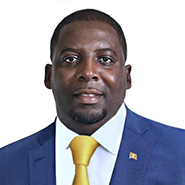
"The University is fully equipped with all the essential instruments for learning and for preparing its students for the professional environment. I am proud to be an alumnus of an esteemed institution that continues to produce distinguished graduates who are thriving in their respective fields."
Adrian Joseph, BSc

"For Grenadians, SGU allows us to follow our dreams by presenting a chance to afford an excellent university education and obtain a college degree or higher, which opens doors that would’ve remained closed had you not had a degree. SGU makes dreams possible."
Afia Joseph, BSc, MBA
Train for your calling with innovative undergraduate programs.
- Mission Statement
- Accreditations and Approvals
- Diversity and Inclusion
- Administration and Faculty
- Grenada Partnerships
- Facts and Figures
- Enrollment and Demographics
- Virtual Tour
- Employment Opportunities
- The Office of Career Guidance and Student Development
- Student Accessibility and Accommodation Services
- The Office of Dean of Students
- Office of the University Registrar
- Health and Psychological Services
- Medical School Blog
- Preference Center
- Consumer Disclosures
- Office of Information Technology
- Privacy Policy
- SGU Weather Emergency Plan
- Submit Website Feedback

Bachelor Of Science (B.Sc) Airline Tourism & Hospitality Management
- About Course
Written By universitykart team | Last Updated date Aug, 14, 2023
(1). About the B.Sc Airline Tourism & Hospitality Management
B.Sc in Airlines, Tourism & Hospitality Management is a three-year course to be had for applicants who've finished their 12th. This application will educate college students in air visitor control, aviation maintenance, air provider operations, airline operations, and different airline operations. The application can even permit college students to apprehend the running of the airline industry. Some crucial subjects that you can be blanketed in this direction encompass Airport Functions of Airlines, Cargo Handling, Corporate Social Responsibility, and Financial Management.
This path is quality suitable for college students who've terrific communique abilities and are assured at the same time as speaking to unknown people. Students who are able to engage with people easily. Students who can understand the requirement of the clients and act accordingly. The people should possess good managerial skills too.
The common B.Sc. in Airline, Tourism, and Hospitality Management course fee offered by these institutes are up to INR 5,00,000 and the profiles offered to students range from Customer care executive, tour operator, tour manager, customer relation manager, etc. The students can expect a starting salary package of 12,00,000-20,00,000 PA depending on their performance and interpersonal skills.
Course Highlights for B.Sc Airline Tourism & Hospitality Management
Listed below are some of the important highlights of B.sc. Airline, Tourism & Hospitality Management course:
Why study B.Sc Airline Tourism & Hospitality Management course?
Studying for a B.Sc in Airline Tourism & Hospitality Management can offer several benefits. Here are a few reasons why you may consider pursuing this course:
(1). Growing Industry
The airline, tourism, and hospitality sectors are expanding rapidly in India. The country has witnessed a significant increase in domestic and international travel, leading to a surge in job opportunities. Pursuing a degree in this field can open up a range of career options within India's thriving tourism industry.
(2). Diverse Career Opportunities
Completing a B.Sc in Airline Tourism & Hospitality Management equips you with the necessary skills and knowledge to work in various sectors of the industry. You can explore opportunities in airlines, hotels, resorts, travel agencies, event management companies, cruise lines, and more. The diversity of the sector allows you to choose a career path that aligns with your interests and strengths.
(3). Practical Exposure
Many universities and institutes offering this course in India emphasize practical training and industry exposure. This can include internships, field visits, and guest lectures by industry professionals. Such practical experiences can help you develop essential skills, network with industry experts, and gain real-world insights into the field.
(4). Global Recognition
India's tourism industry attracts travelers from around the world, making it an excellent destination for studying airline tourism and hospitality management. Acquiring a degree from an Indian institution can provide you with global recognition and enhance your chances of employment internationally.
(5). Cultural Diversity
India is known for its rich cultural heritage and diverse tourism offerings. Studying in India allows you to experience this cultural diversity firsthand and gain a deeper understanding of the country's tourism potential. Exposure to different cultures can be invaluable when working in the global tourism industry, as it helps you develop cross-cultural communication and adaptability skills.
(6). Affordable Education
Compared to many other countries, studying in India can be more cost-effective. Tuition fees and living expenses are relatively lower, making it a more affordable option for many students. Additionally, various scholarships and financial aid options are available to support deserving candidates.
(2). Admission Process for B.Sc Airline Tourism & Hospitality Management
Admission procedure in the B.Sc Airline, Tourism & Hospitality Management course for the eligible aspirants are in two modes: one the selections are on a merit basis, and the other the entrance examination, which is positioned by the board or the college's selected authority universities. The eligible aspirants must accomplish the entrance examination final list. The route falls below the umbrella of B.Sc and henceforth has a comparable admission process.
Types of B.Sc Airline Tourism & Hospitality Management Courses
Applicants can complete the course full-time or part-time. Detailed Types of Airline, Tourism & Hospitality Management UG Degree Publications are listed below:
(1). Distance
The B.Sc Airline Tourism & Hospitality Management distance learning course takes 4-5 years to complete and is divided into six semesters of six months each. For people who want to get a bachelor's degree in airline, tourism & hospitality after starting college but don’t have time to wait for daily classes, a remote bachelor's degree is the right option.
(2). Full time
The full-time B.Sc Airline Tourism & Hospitality Management lasts two years. This course requires more realistic information than theoretical understanding. The benefit of a full-time major is that through face-to-face interaction with friends and professors, scholars can benefit from a wealth of additional contacts, experience, and information.
(3). Part-time
The extra-occupational B.Sc Airline Tourism & Hospitality Management is aimed at young graduates who cannot take part in daily classes. The duration of the course is four-five years. The advantage of part-time studies is that the students can complete the course while working, etc.
Eligibility Criteria for B.Sc Airline Tourism & Hospitality Management
The eligibility requirements for B.Sc Airline, Hospitality, and Tourism vary from university to university. Students must fulfill the following requirements:
Admission Process for B.Sc Airline Tourism & Hospitality Management
Accepted Entrance Exams for B.Sc Airline Tourism & Hospitality Management
The B.Sc Airline Tourism & Hospitality Management entrance exam is conducted by various universities and government-aided institutes of IHM. India is one of the leading educational institutes for the B.Sc Airline Tourism & Hospitality Management eligibility to get into colleges and universities worldwide.
Mentioned details on the entrance exams are given below:
Skills Required for B.Sc Airline Tourism & Hospitality Management
Some of the key skills required for the B.Sc Airline Tourism & Hospitality Management are as follows:
Fee Structure for B.Sc Airline Tourism & Hospitality Management
B.Sc Airline Tourism & Hospitality Management fees structure on average is around INR 10,000-5,00,000 B.Sc in Hotel Management fees fluctuate with the ranking in academics and infrastructure wise. The payment can be either by cash or by overdraft.
Mentioned below are B.Sc Airline Tourism & Hospitality Management course fees:
Selection Criteria for B.Sc Airline Tourism & Hospitality Management
Aspirants are selected for the final round after clearing the entrance examination process.
(3). Course Comparison
B.sc Airline, Tourism & Hospitality v/s BBA Hospitality & Tourism
Listed beneath is the contrast between BBA HTM and BBA International Business:
Read More: BBA in HTM
(4). Top Colleges for B.Sc Airline Tourism & Hospitality Management
The few top institutes that offer B.sc in airline, tourism & hospitality course with the fee structure offered are mentioned below:
(5). Job & Placement for B.Sc Airline Tourism & Hospitality Management
B.Sc Airline, Hospitality, and Tourism is a multi-billion greenback enterprise that gives adequate activity opportunities to college students after commencement throughout numerous sectors. They can begin operating with the airlines, transportation services, and hotels, or they also can follow tour agencies. Candidates after their diploma can begin their personal venture. With a diploma in hand, applicants get possibilities the world over as multinational corporations want experts in the hospitality and tour industry.
Job Profiles for B.Sc Airline Tourism & Hospitality Management
Listed below are some job profiles for B.sc Airline, Tourism & Hospitality management graduates with their job descriptions:
Top Recruiters for B.Sc Airline Tourism & Hospitality Management
Listed below are some of the top recruiters that recruit B.sc airline, tourism & hospitality management graduates:
Average Salary for B.Sc Airline Tourism & Hospitality Management
Given below are the average salaries for B.sc airline, tourism & hospitality graduates:
(6). Career/Scope for B.Sc Airline Tourism & Hospitality Management
After finishing the degree, college students can begin operating in hotels, restaurants, airlines, journey agencies, reputed firms, amongst others. Students can select from quite a few roles that consist of resort Manager, Front Office Manager, Food and Beverage Manager, chef, Cabin Crew, Travel Consultant, and Travel Coordinator. Students can choose post-graduation in hospitality and travel. A hospitality and journey diploma holder can earn a median revenue of as much as 5,00,000 according to annum. Students interested in better ranges can cross for M.Sc. within the equal field.
Career options after B.Sc Airline, Tourism & Hospitality Management
After completing a B.Sc in Airline, Tourism & Hospitality Management, you will have a wide range of career options available to you in the airline, tourism, and hospitality industry. Here are some popular career paths you can consider:
(i). Resort Management (ii). Cruise Line Management (iii). Tourism Development (iv). Hospitality Consultancy (v). Entrepreneurship (vi). Teaching and Research (vii). Airline Management (viii). Hotel Management, housekeeping, sales, and marketing, or event management. (ix). Travel and Tour Operations (x). Event Management
Scope for Higher Education B.Sc Airline Tourism & Hospitality Management
B.Sc Airline, Tourism & Hospitality Management scope in higher education for the aspirants in different departments can specialize career in their preference to pursue a successful career path in the fields such as front office, accounting, maintenance, security, sales, marketing, etc.
Mentioned below are a few institutes B.Sc in Airline, Tourism & Hospitality Management scope for hiring aspirants in their organization:
(i). BA in Hospitality Management (ii). MBA in Hospitality Management and Tourism (iii). Diploma in Hotel Management & Catering Technology (iv). B.Sc in Catering Science and Hotel Management
Skills that make you the Best Airline, Tourism & Hospitality Manager
The skills that make the best hospitality manager recognize talent by easily just looking at it and developing it. Sharing excellent knowledge wisely with everyone and sharing the core efficiency values of the Hospitality Industry.
Mentioned below are a few basic skills that make the best B.Sc Airline, Tourism & Hospitality Management aspirants:
(i). Technology savviness (ii). Flexibility (iii). Leadership (iv). Attention to detail (vi). Commitment (vii). Interpersonal skills (viii). Listening skills
(1). What is a B.Sc in Airline, Tourism & Hospitality Management course?
Ans. B.Sc in Airlines, Tourism & Hospitality Management is a three-year course to be had for applicants who've finished their 12th. This application will educate college students in air visitor control, aviation maintenance, air provider operations, airline operations, and different airline operations.
(2). What are the eligibility criteria for B.Sc in Airline, Tourism & Hospitality course?
Ans. Students must have completed 10+2 with English as the core subject. They must clear the entrance examination for the course admission.
(3). What are the top entrance exams in B.Sc Airline, Hospitality and Travel?
Ans. Some of the top entrance exams are IPU CET, UGAD, NCHMCT JEE, MAH HM CET, and others.
(4). What is the average salary for B.Sc Airline, Hospitality, and Travel graduates?
Ans. The average salary for the B.Sc Hospitality and Travel graduate is around INR 5,00,000.
(6). What is the average tuition fee for B.Sc Airline, Hospitality, and Travel?
Ans. The fee for the B.Sc Airline, Hospitality, and Travel degree course is around Rs. 10,000-5,00,000.
(7). Is Hospitality and Travel a good career?
Ans. The Hospitality and Travel industry is a good career choice. After completing a course, candidates can work in several areas of their choice such as aviation, hotels, travel services, transportation, and many more.
(8). What are the specializations in the Hospitality and Travel industry?
Ans. Some of the specializations are a BBA in Hotel and Tourism Management, a BSc in Hospitality, a BSc in Hospitality and Tourism Studies, Bachelor of International Business in Hotel and Tourism Management.
(9). What is the difference between hospitality and hotel management?
Ans. Hospitality and hotel management are different disciplines of the same industry. While Hotel Management encompasses the working of different departments of a hotel (or chain of hotels), Hospitality Management is a broader term and it includes the working of the hotel industry, and airline industry as well as managing conferences, sales, events, business development, and the like.
(10). What are the best jobs after completing B.Sc Airline, Hospitality, and Travel?
Ans. Some of the best jobs are Hotel Manager, Food and Beverage Manager, Housekeeping Manager, Chef, Cabin Crew, Travel Coordinator, Front Office Manager, and others.
Student Also Visited
Imperial college of hotel management & tourism (ichmt, visakhapatnam), federal institute of hotel management (fihm), noida, university institute of tourism and hospitality management, chandigarh university - (uithm, chandigarh), international institute of hotel management (iihm), new delhi, tmi academy of travel, tourism & aviation studies, new delhi, international polytechnic, new delhi, airrath institute of education and aviation training pvt. ltd, new delhi, institute of hospitality and management (ihm, patiala), rimt college of architecture, fatehgarh sahib, international college for new age studies - [icnas], kozhikode.
Need a Call Back

- Scholarships
- Applications Deadlines
- College Course Details
- Shortlist Apply
- 24*7 Counselling

By Submitting this form, you accept and agree to our Terms of Use

We use cookies to help our site work, to understand how it is used, and to tailor ads that are more relevant to you and your interests.
By accepting, you agree to cookies being stored on your device. You can view details and manage settings at any time on our cookies policy page.
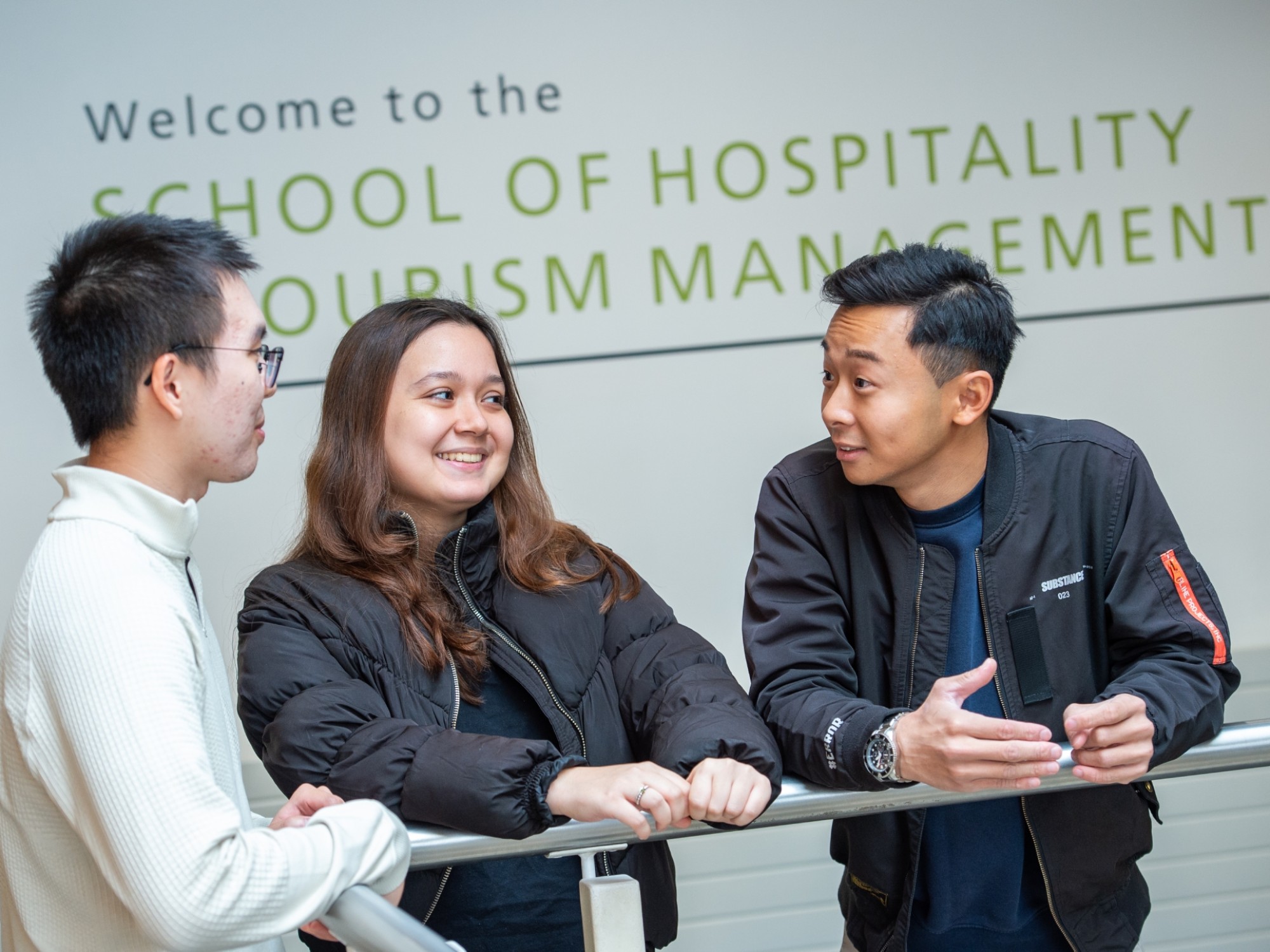
BSc (Hons) — 2025 entry International Hospitality and Tourism Management
Our innovative BSc (Hons) International Hospitality and Tourism Management course combines core business and management studies with specialist hospitality and tourism modules.
Key course information
Bsc (hons) with placement, bsc (hons) with foundation year, bsc (hons) with foundation year and placement, why choose this course.
- From hotels to casinos, airlines to cruise ships, tour operators to resort development, our BSc (Hons) International Hospitality and Tourism Management will prepare you for a career in this exciting and fast-growing sector.
- Surrey is the UK’s top university for tourism, transport, travel and heritage studies, with our School of Hospitality and Tourism Management having an outstanding global reputation
- You’ll have the opportunity to take one of our our award-winning Professional Training placements that will prepare you for roles in industry.
1st in the UK
For tourism, transport, travel and heritage studies in the Complete University Guide 2025
World-leading
1st in the UK and 2nd in the world for hospitality and tourism management in the Shanghai Global Ranking of Academic Subjects 2023
And 15th in the world for hospitality and leisure management in the QS World University Rankings by Subject 2024
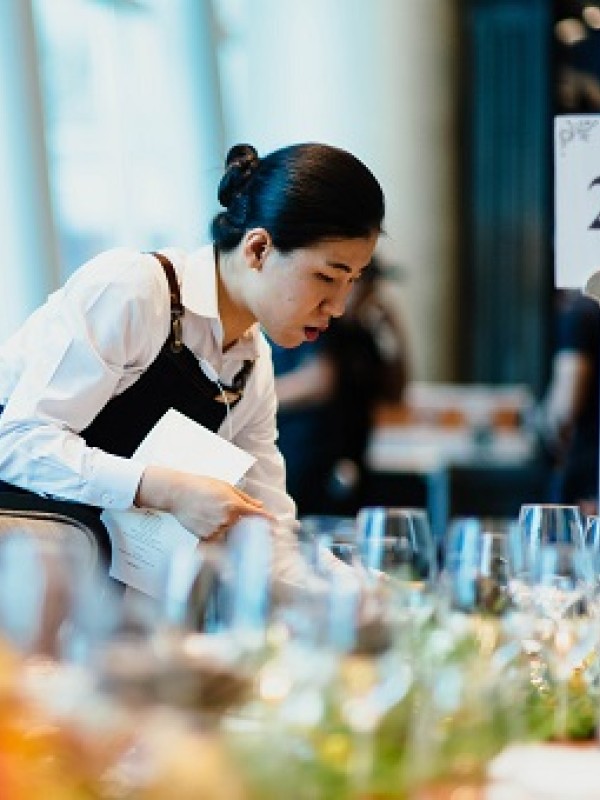
Five reasons to study a course within the School of Hospitality and Tourism Management at Surrey
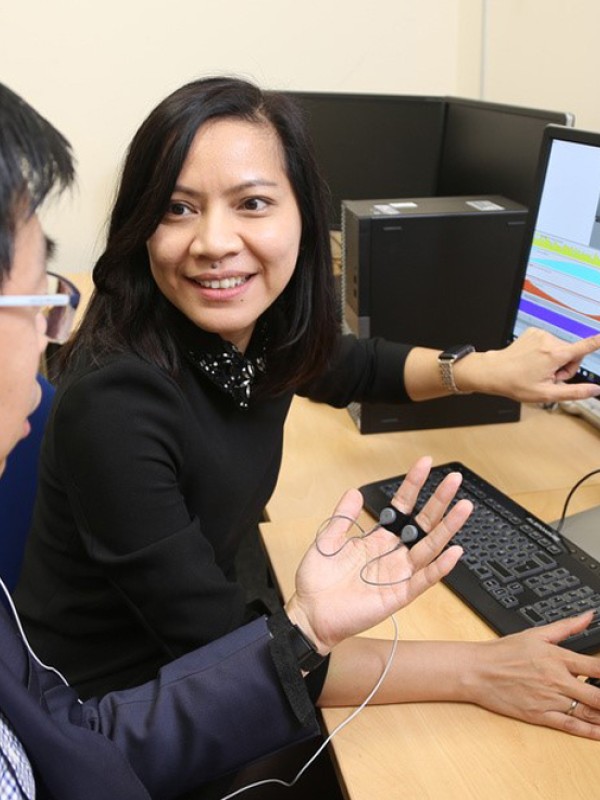
Introducing the School of Hospitality and Tourism Management
Course details open, what you will study.
Our course combines theory and practice to give you the chance to apply your knowledge, making use of case studies, business simulations and site visits. This balance gives you both the in-depth knowledge to thrive in international hospitality and tourism, and a broader range of transferable skills that can be applied to a variety of managerial and entrepreneurial roles.
In the business modules, you’ll explore the approaches and techniques vital to managing and running an international business. Our specialist modules give you a detailed appreciation of the unique features, opportunities and challenges of the hospitality and tourism industries.

Dr Bora Kim
Programme leader
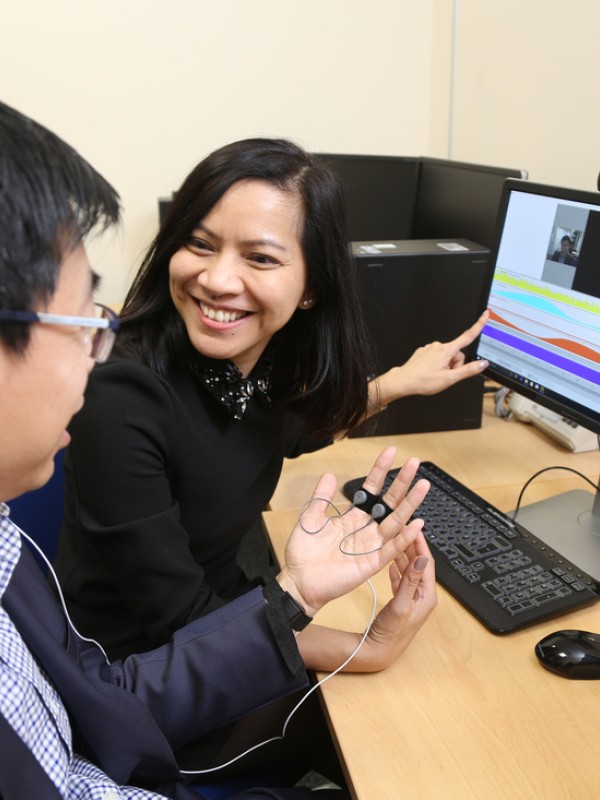
School of Hospitality and Tourism Management
This course is taught by academic staff from the School of Hospitality and Tourism Management.
Course structure Open
The academic year is divided into two semesters of 15 weeks each. Each semester consists of a period of teaching, revision/directed learning and assessment.
The structure of our programmes follow clear educational aims that are tailored to each programme. These are all outlined in the programme specifications which include further details such as the learning outcomes.
- International Hospitality and Tourism Management BSc (Hons)
- International Hospitality and Tourism Management BSc (Hons) with placement
- International Hospitality and Tourism Management BSc (Hons) with foundation year
- International Hospitality and Tourism Management BSc (Hons) with foundation year and placement
Please note: The full module listing for the optional Professional Training placement part of your course is available in the relevant programme specification.
Modules listed are indicative, reflecting the information available at the time of publication. Modules are subject to teaching availability, student demand and/or class size caps.
The University operates a credit framework for all taught programmes based on a 15-credit tariff.
Course options
Year 1 - bsc (hons), services marketing.
Services industries are a driving force of value creation. Nowadays nearly every product has a service component and as such service businesses are increasingly dominant forces in the global economy. Services are intangible, consumed at the time of their production, cannot be stored, and standardization is a challenge. This module is designed to provide students with an understanding of the challenges service organizations face due to service characteristics, consumer behaviour, and a dynamic and increasingly challenging global environment. This module introduces the core principles of services marketing and consumer behaviour considering service characteristics. In doing so students will be dealing with a variety of marketing topics allowing them to appreciate the complexity of the topic as well as relevant theories and models service providers can take advantage of in terms of managing the service experience for their customers. To emphasize the applicability of service and consumer behaviour theories to various fields this module is divided into two parts: First, general principles of services marketing and consumer behaviour are covered. Second, industry (i.e., tourism, events, or hospitality) specific theory and applications are introduced. In an increasingly customer centered environment this module will provide an understanding about theories, approaches and techniques concerning how to attract and retain customers while dealing with challenges due to services characteristics and changing consumer behaviour. The module also creates an opportunity to facilitate 'real life' decision-making and enhances a wide range of study skills, such as independent research, analytical skills as well as critical thinking. As such the goal is to contribute to resourcefulness and resilience and to develop digital capabilities linked to the topics covered. Consequently, students develop skills relevant for employability.
FUNDAMENTALS OF SERVICE DELIVERY
All managers in service industries need to be able to understand, analyse and improve the processes for which they are responsible. In order to be able to do this effectively they need to understand the nature and purpose of the service concept and the fundamental ways processes and people deliver this.
TOURISM MANAGEMENT
During the 20th century tourism has developed into one of the major activities and industries in the world and it looks set to continue its global importance in the new century. Against this background there is a need to consider the context to this development and to appreciate the current position and influences on the demand for tourism. With this background, students will be able to understand the nature of the industry and its management issues.
THE VISITOR ECONOMY AND BUSINESS ENVIRONMENT
Businesses do not exist in isolation. They operate within a complex and sometimes turbulent environments. This module invites students to explore the influences of various external factors¿international, economic, political, ecological, technological, socio-cultural and technological¿at local, national and international levels on business organisations, and how businesses can in turn impact the environment.
FINANCIAL ACCOUNTING IN SERVICE INDUSTRIES
This module is intended to provide an introduction to financial accounting. It is aimed at students who are not majoring in accounting or finance but who are studying an introductory level of accounting and finance as part of their programme in management and is particularly focused on students specialising in the Hospitality, Tourism and Events sectors.
ROOMS DIVISION MANAGEMENT
This module aims to provide exposure to the working environment of rooms division through exposure to hotel operations through a series of lectures, guest speakers, workshops and directed tasks to the underlying theory and business processes in this important area of operations. The emphasis here is on an operational understanding.
TOURISM AND SOCIETY
This module develops students’ understanding of the roles tourism plays within and for societies, thereby widening students’ global and cultural capabilities. The module gives students an introductory overview of the history and origins of tourism, its contemporary nature, the inequalities that characterise it and the possibilities for social justice and social sustainability through maximising tourism’s positive societal outcomes. On the basis of theoretical concepts drawn from sociology, anthropology, leisure and tourism studies, the module provides students with a more critical awareness of the relationships between tourism and society, supported by international case study examples and opportunities for critical debate.
SUSTAINABILITY IN AVIATION AND TOURISM
The growth of air travel tourism in the recent past has made global travel accessible to unprecedented numbers of people; however, this progress has come at a high cost to the societies and the environments of the places visited, as well as having global climate change consequences. All stakeholders have a responsibility to contribute to sustainable forms of development, that allow us to balance the ambitions of a wealthier society, the needs of the most vulnerable communities, and the capacity of the planet to sustain us.
Year 2 - BSc (Hons)
Managing organisations and human resources.
The module introduces students to the principles of organisational behaviour and human resource management. It encourages them to identify the relevance of these principles for practice in different sectors. In particular, it will focus on the ways in which an understanding of human behaviour can help in the management of others and self. It will examine fundamental individual and group processes and the ways in which these inform the policies and practices of people management.
APPLIED FINANCIAL MANAGEMENT IN SERVICES
The prime motivator is to equip students with a good and meaningful understanding of hospitality/tourism/events finance and accounting. The objective is to develop accounting and finance skills needed by competent young professionals to achieve sustainable profits for various stakeholders. This module will covers management accounting that includes costing, budgeting and the fundamental principles of corporate finance and investment.
UNDERSTANDING REVENUE MANAGEMENT
This module is designed to develop an understanding of revenue management (RM) in the context of where it is applied within the international Tourism industry. This has become a major strategic tool in the successful operation of businesses, such as airlines, cruise ships, hotels, restaurants and more. The module provides an overview of the RM, looking all aspects of this activity from a variety of perspectives ie Pricing, distribution, inventory management, stakeholders, and strategy.
The module provides a background to the basics of gastronomy including the development and origins of food and drink traditions, within multiple contexts. The development of the modern cuisine styles are examined and the influencing factors in food and drink selection. Current trends and their application to the menu development, quality and awards are also covered
VENUE MANAGEMENT
A large number of global events are undertaken in fixed locations, such as hotels, theatres, stadia and purpose built event spaces. The choice of venue is a critical element of event management, typically based on capacity, price and location, but also more complex variables such as the venue¿s sustainability credentials, credibility, experience, accessibility and how the venue is managed. This module will provide a firm grounding in understanding the complexities of venue selection in event management. Additionally, many careers in event management are venue based, and managing venues requires knowledge and skills in addition to those of the creative event manager. As such, this module will review operational venue management to include diary management, venue marketing, catering operations, legal, health and safety and licensing considerations as well as how developments in technology and sustainability are impacting venue management.
DESTINATION MANAGEMENT AND DEVELOPMENT
This module offers an integrated approach to understanding the critical aspects of destination management and development. It provides a thorough analysis of the intricate relationship between policy and strategic planning and destination management, emphasising the role of coherent policies and stakeholder relationships in achieving sustainable tourism development. It explores the collaborative dynamics between the public and private sectors, highlighting the importance of developing policies that cater to the needs of diverse stakeholders while setting clear planning objectives to foster destination development. This module aims to develop students' ability to critically explore and evaluate the key principles and characteristics of destination management and development. It seeks to examine the essential components of destination management, including stakeholders and partnerships, governance structures, tourism and sustainable development goals, regenerative tourism, and smart tourist systems in destination management and development. Students are provided with the opportunity to apply theories of destination management and development to practice, as the incorporation of real-world national and international case studies represents a key component of this module.
DIGITAL INNOVATION AND DATA ANALYTICS
Digital innovation and data analytics are regarded as key for the development of enterprises, destinations and the services sector including hospitality, tourism, transport and events. Being aware of available technologies and being able to use data to extract patterns and generate insights to support strategic decision making are important for enterprises to be able to create innovative solutions to business problems and compete in an increasingly competitive and transparent environment. As such, awareness about digital innovation and data analytics as well as the ability to judge the quality of interfaces are vital to succeed in the social and economic business environment within the services sector, including hospitality, tourism, transport, and events. This module provides students with an understanding of the importance of digital innovation and data analytics in the services sector. It involves a critical reflection on contemporary strategies, concepts and ideas that currently shape hospitality, tourism, transport and event practices. It also aims to equip students with the fundamental concepts and tools needed to understand the emerging role of business analytics in service organisations and shows students how to apply business analytics tools and to communicate with industry professionals to effectively use and interpret analytic models and results for making better business decisions. The module deals with the importance of consumers' perception of the design of technological interfaces for business success and covers how to critically examine user interfaces and how to make sense of user-based interface evaluation data.
OPERATIONS ANALYSIS
An important part of the manager’s job is to be able to identify and respond to problems that occur in hospitality operations and to take corrective action to return the operation to an appropriate position. This module builds on the student’s understanding of key concepts and allows them to apply that understanding to a realistic and constantly changing scenario.
DIGITAL MARKETING IN THE VISITOR ECONOMY
This module introduces students to the key issues, strategies and practices of marketing in the digital environment of tourism, hospitality and events. With the rapid rise in the use of the Internet and new media technologies, there are a number of digital tools and technologies available to marketing managers. This module provides students with an understanding of the importance and the application of digital marketing in general and social media in particular. It is vital for tourism, hospitality and event enterprises to acknowledge that consumers are now co-marketers, co-designers, and co-producers of travel experiences and that it is essential to take advantage of consumers as a source of knowledge for innovations and experience design in order to be able to compete in an increasingly competitive and transparent environment. The module therefore deals with how firms can utilize digital marketing and related channels and communication modes to enhance networking, collaboration, and travelers' engagement with services provided by tourism, hospitality or event organizations.
TOURISM FIELDTRIP
The module is centred on an international field trip with the objective to provide the opportunity for students to experience first hand the complex practices and processes involved in tourist destination marketing, management, planning and development.
VISITOR ATTRACTION MANAGEMENT
Visitor attractions are a key element of the tourist experience and a major element of a tourist destination. This module explores types of visitor attractions, identifying key attributes of each type and the management of visitor attractions worldwide using extensive real-world case studies, application of technology and innovation in visitor attraction management for example, Virtual Reality (VR), Augmented Reality (AR) and Artificial Intelligent (AI). This module also investigates the functional management of visitor attractions, managing impacts of visitor attraction management on local environment, society and economy and taking into consideration ethical issues in visitor attraction management and risk management.
INTERCULTURAL MANAGEMENT IN THE VISITOR ECONOMY
This module is designed to provide students with an understanding of the way hospitality, travel, tourism, events and aviation operations necessitate the adoption of a cultural approach to management. Understanding different theories, approaches and proven practices will allow students to analyse situations where the business environment has been compromised by deficient cultural approaches. Mastering the managerial skills required for efficient cultural diversity, with a broad understanding of how it applies to business objectives, is of paramount importance within this module. The outcomes ensure that students have a clear idea of the inherent considerations involved with managerial decision-making, and their cultural consequences.
AIRPORT MANAGEMENT
This Airport Management module provides a comprehensive overview of the management and strategic dimensions of airports. Covering the structure of the airport industry, it examines airport economics and the airport-airline relationship, highlighting the importance of collaboration for efficiency and growth. The module touches on airport service quality and passenger experience, alongside the strategic provision of commercial facilities. Students will explore airport competition, marketing's role in fostering growth, and the significant economic and social impacts of airports on local and global scales. The module addresses the environmental responsibilities of airports, promoting sustainable management practices. Students will be prepared for roles in the evolving airport and aviation industry, equipped with the required knowledge and skills.
Year 3 - BSc (Hons)
Business research methods.
The Business Research Methods module aims to provide students with the necessary skills and knowledge to determine the information necessary to address the identified basic or applied research problem and, using these skills and knowledge, develop an actionable research proposal. Students will gain an understanding of relevant approaches, elements, and stages of undertaking a research enquiry to provide insights to solving a relevant business problem. Students will develop core competence required to carry out a research enquiry, including identifying and formulating research problems, setting appropriate research objectives, selecting and applying appropriate research approaches, secondary and primary data collection and instruments, sampling and analysis methods, as well as the importance of ethical conduct in business research. This module discusses different methods and techniques essential to the execution of effective, coherent, and rigorous research for informed business decisions and practices.
STRATEGIC MANAGEMENT
The module is intended to provide an opportunity to review current trends and strategic issues in the international THE (Tourism, Hospitality, Events) industry and their impact on managing international organisations. It will consider the influence of current and future global issues on strategic management of businesses including geo-dynamics, technological advances, new customer dynamics, sustainability concerns and resilience of key stakeholders through socio cultural and economic challenges. The content of the module will therefore review several theoretical concepts and case studies from THE industries delivered by industry experts and lectures/tutors to develop students¿ strategic thinking and management skills.
DIGITAL EVENTS MANAGEMENT
Digital Events Management aims to increase student knowledge and understanding of Digital Event Operations, through the project management of an event. The module will focus on key project management tools and digital resources, and a range of possible interventions will be discussed.
The module will provide students an insight of a wide range of leadership practices in the extant literature in the context of tourism, hospitality and events. The module will cover from the fundamental notions of leadership frameworks/concepts to contemporary views of leadership practices. It offers a range of theoretical approaches and practices and their application within tourism, hospitality and events context. This will allow students to understand how leadership styles can impact individual wellbeing as well as organisational performance.
ECONOMICS OF LEISURE AND TOURISM
This module attempts to critically apply the principles of economics in the business of leisure and tourism. The module provides students with opportunities to develop their understanding of key aspects of economics and quantitative economic analysis skills applicable to the leisure and tourism industry.
STRATEGIC REVENUE MANAGEMENT
This module is designed as a continuation for students who had previously studied Revenue Management in the previous year. The aim is to take the key principles of Revenue Management previously taught and to expand on them substantially to add depth of knowledge, Skills in Revenue management and to have the ability to form short and long term strategies based on analysis, forecasting and market demand. From a programme perspective, this module will provide the key skills needed for any student interested in undertaking this key area further in their career.
TOURISM STRATEGY AND INNOVATION
This module aims to develop students' ability to explore and evaluate concepts and applications of strategy and innovation in tourism management and operations. It aims to explore strategic innovation as a dimension of the overall strategic management of a firm/destination where innovation is embedded in comprehensive attempts to maintain competitiveness. It is designed to explore real world case studies of innovation as a strategic approach applied by organisations and policymakers at global, national and destination levels and at different managerial and strategic climates. The module will equip students with the critical skills to evaluate the successful/unsuccessful implementation of tourism strategy and innovation.
DISSERTATION
The Dissertation module involves students in an original research project. It provides students an opportunity for a directed individual study focusing on topics of interest related to their programme of study. Using one or a variety of methods, students will collect data and contribute to problem solving in relevant management contexts. Emphasis will be placed on the process of scientific research. Students will develop skills on how to plan, carry out, and communicate research work as well as knowledge of theoretical and practical specialisation within relevant subject areas.
MENTORING AND PROFESSIONAL DEVELOPMENT
This module provides the final stage in the employability and professional development thread of the SHTM UG programmes. This module focuses on developing a mentoring relationship between students and industry professionals representing a range of career opportunities and positions within tourism and hospitality. The formal mentor relationship will give the students exposure to industry and a dedicated mentor. The mentor will assign the student an industry based project to complete with the objective to provide the opportunity for the students to experience first-hand how business operates. The mentor will guide the student through the process and aid with their skill development.
HOSPITALITY, TOURISM AND EVENTS CONSULTANCY
This a practical module that provides the opportunity for students to collaboratively undertake a real consultancy project on behalf of an external industry client. Students will use project management, interpersonal and analytical skills in order to deliver a consultancy project that meets the needs of a client and supports businesses and organisations towards a successful and sustainable future. This module will enable students to draw upon the knowledge that they have acquired throughout their programme, and will strengthen students’ creative, digital and innovation skills, builds students’ resilience and resourcefulness, cross-cultural competencies, and provides a pathway into employability through the skills developed and direct industry interaction.
HOTEL INVESTMENT
The module will cover the complete financial cycle of hotel investment analysis including development, lending; operations, investment analysis, renovation decisions, acquisition and disposition. Hotel valuation principles and procedures are explored with emphasis on the replacement cost, sales comparison, and income capitalization approaches. As well, the role and function of the asset manager is discussed with emphasis on investment underwriting, portfolio management, operations analysis, market strategy, management contracts, franchises, strategic investment analysis and the property management team
INNOVATION AND DEVELOPMENT IN RESTAURANT OPERATIONS
This module provides final year students with the opportunity to look in depth at the development of the restaurant industry drawing on current and historical operations and track their development from single unit to international chain. From a programme perspective it provides an opportunity to specialise in the consideration and appreciation of the complexity of food and beverage operations.
STRATEGIC BRAND MANAGEMENT IN EVENT, HOSPITALITY AND TOURISM
Hospitality, tourism and events businesses and organizations operate in a complex marketing environment. Whilst the future of brands and branding are the subject of intense debate in an age of accelerating disruption and digital revolution, the branding of hospitality, tourism and events products, places and services remains a crucial 'promise of an experience'. This module requires the student to adopt a consultant’s mind-set and develop a strategy for an event, hospitality, or tourism brand. The module aims to develop students’ abilities to critically explore and evaluate the key principles and characteristics of brand management. It aims to discuss the essential components of brand management, including market analysis, brand auditing, and brand evaluation. Students are provided with the opportunity to apply brand management theories to practice as the development of a feasible and credible brand strategy represents a key component of this module.
CONTEMPORARY HOSPITALITY OPERATIONS MANAGEMENT
This module provides a synthesis of employability in operations management, with a particular focus on key current innovations, through the introduction of concepts and frameworks drawn from the operations management and hospitality operations literature. It aims to enhance and develop students abilities to draw on theoretical knowledge and innovative approaches within industry to addressing current challenges within international hospitality operations. By exploring key concerns for senior operations managers, the module seeks to provide students an understanding of current challenges around digital and cultural influences as well as sustainability concerns that impact the design and delivery of international hospitality operations.
BUSINESS PLAN
Students will have the opportunity to learn about the different approaches that aim to answer the question: how do I plan, assess, and implement a new business venture? Business plans are essential not just for the successful implementation of start-up ventures, but also for continued business growth, including strategic competitiveness. A good business plan underpins business success on all levels and becomes a major guideline to sound management practices. All students will find much value in the business principles inherent to the planning process, which will lead to an enhanced commercial understanding. This module’s content and outcomes build solidly upon undergraduate business-related courses from level 4 and 5, as well as any accumulated business experience. It doesn’t just reiterate much of the theory previously learnt, but also applies it in a create and innovate way to emphasise creative business development, profitability, growth, and sustainability. It holistically addresses preferred business outcomes and brings all its components together.
DESTINATION MANAGEMENT
Destination management organizations (DMOs) and convention bureaux operate in a complex environment. They need to act as change agents and embrace social responsibility, sustainability, and stewardship. Destination management must be understood as building and sustaining partnerships between society, businesses, and governments, which makes destination management a highly complex area of study. This module aims to develop students¿ ability to critically explore and evaluate the key principles and characteristics of destination management. It aims to explore the essential components of destination management, including stakeholders and partnerships, governance structures, leadership, event strategies, sense of place, and performance evaluation. Students are provided with the opportunity to apply destination management theories to practice as the incorporation of real-world national and international cases represents a key component of this module.
Year 1 - BSc (Hons) with placement
Year 2 - bsc (hons) with placement, year 3 - bsc (hons) with placement, semester 1 & 2, professional training year module (full-year work).
This module supports students’ development of personal and professional attitudes and abilities appropriate to a Professional Training placement. It supports and facilitates self-reflection and transfer of learning from their Professional Training placement experiences to their final year of study and their future employment. The PTY module is concerned with Personal and Professional Development towards holistic academic and non-academic learning, and is a process that involves self-reflection, documented via the creation of a personal record, planning and monitoring progress towards the achievement of personal objectives. Development and learning may occur before and during the placement, and this is reflected in the assessment model as a progressive process. However, the graded assessment takes place primarily towards the end of the placement. Additionally, the module aims to enable students to evidence and evaluate their placement experiences and transfer that learning to other situations through written and presentation skills.
CONTEMPORARY ISSUES IN BUSINESS, MANAGEMENT AND ECONOMICS
This is a core module where students can identify, explore, and analyse contemporary issues in the business, management, and economic environments of the 21st century. The overall focus of the module is on: to encourage students to identify and analyse key issues such as inflation and its impact on cost of living from international, national, industry and firm perspectives. To evaluate the impact of these contemporary issues and suggest critical solutions. Teaching inputs introduces students to key concepts and theories of business, management, and economics. Contemporary issues are then identified and discussed, encouraging student to utilise key concepts in analysing these issues. Student through seminars and guided activities are encouraged to carry out research using library resources and reputable internet sources. This develops their research skills by exposing them to a wide range of literature and encourages critical analysis of different perspectives on a topic or issue. This approach guides students through the learning cycle of knowledge, application, and analysis of issues, concepts, and theories. This builds the students confidence and learning skills essential for the degree programmes and professional careers. Throughout the semester students have additional opportunities to book individual/group sessions to clarify /address any learning issues.
INTRODUCTION TO DECISION MAKING
Introduction to Decision Making is designed to empower students with the knowledge and skills necessary to make informed and effective decisions in the world of business. Content is intended to complement rather than repeat any previous study of business or economics and assumes no previous formal study in these areas. The module places students at the centre of their learning, fostering critical thinking, problem-solving, and decision-making abilities that are crucial for success in a dynamic and complex business environment. Through a combination of theoretical concepts, case studies, and practical exercises, students will develop the competencies needed to analyse, evaluate, and communicate business decisions that align with organisational objectives and ethical considerations. Students will study basic behavioural and management principles and undertake evaluative exercises to assess the desirability of outcomes. Financial and data-driven decision making will be explored. Underlying ethical themes such as sustainability and equality and diversity will be examined alongside drivers such as profitability and innovation. Assessments are designed to build digital capabilities and enhance employability skills and resourcefulness.
GLOBAL BUSINESS CONTEXTS
Global Business Contexts is designed to empower students with the knowledge and skills necessary to excel in the global marketplace. The module places students at the centre of their learning, fostering an understanding of international business environments, strategies, and challenges. Students will explore the dynamics of international trade, cross-cultural communication, global market entry strategies, and the impact of globalisation and de-globalisation on businesses. By actively engaging with the material and applying it to real-world scenarios, students will be better prepared to navigate the complexities of international business. The characteristics of different economies will be explored and compared, along with the operations of multinational businesses. The strategic issues which face organisations in a global context will also be examined. The module will build awareness of political, cultural and socio-economic dynamics in and between market economies. There will be an opportunity to develop some of the ethical considerations which have been explored previously in the Introduction to Decision Making (MAN0002) module. The module will build on the knowledge and skills gained in Semester 1. Data analysis will be a significant factor in order to support students to develop their numerical skills in anticipation of their degree-level study.
RESEARCH PROJECT
This is a guided research module where students identify and explore in detail a topic of their choice within the fields of Business, Economics or Hospitality and Tourism Management, then write a 3000-word literature review on their chosen subject. The overall focus of the module is on: learning to research independently, making best use of the digital resources available through the university library drawing appropriate conclusions from analysis and investigation of text and data Teaching inputs guide students in their choice of topic and approach, and provide them with extended opportunities to develop resourceful approaches and relevant skills. Engaging with in-class activities and online tasks in research, reading and academic writing throughout the semester will prepare students well for discipline specific writing and research challenges at higher levels of degree study and in the workplace.
'CREATE' (CREATIVITY, RESOURCEFULNESS, ENTERPRISE AND TASK EVALUATION)
The purpose of this module is to build leadership, independent learning and transferable skills which have a practical value for progression, whether that be to undergraduate study or employment. As the module acronym suggests, students will focus on Creativity, Resourcefulness, Enterprise and Task Evaluation. This will be done through experiential, real-world learning tasks and assessments. The module contains a strong focus on Employability. Could you answer the question: “what will make you more employable than other graduates with the same degree as you?”. CREATE will address this very question and begin the process of you developing a strong personal brand. Through a range of carefully designed tasks, you will develop resilience, digital capabilities and explore a range of theoretical concepts that will be invaluable for your future studies and careers The module is designed so that, as you progress through the year, you will increasingly be able to build on and apply your learning from other modules on the programme, allowing you to further develop as a well-rounded and high-performing individual.
Teaching and learning
Each 15-credit module involves 150 hours of student work. This includes time spent in lectures, workshops and tutorials, as well as private study on your own or in small study groups. You’ll also write essays and assignments that draw on your understanding of a subject and deliver presentations for assessments that develop your transferable skills.
Our staff members are innovative in providing engaging learning sessions that bring together theory and practice for your intellectual and professional development.
- Independent study
- Project work
We award credits for the successful completion of each module. Assessment takes place through a variety of methods, including examination and/or coursework, practical assessments and business reports
Check individual module information to see full details at a module level.
General course information
Contact hours.
Contact hours can vary across our modules. Full details of the contact hours for each module are available from the University of Surrey's module catalogue . See the modules section for more information.
New students will receive their personalised timetable in Welcome Week. In later semesters, two weeks before the start of semester.
Scheduled teaching can take place on any day of the week (Monday – Friday), with part-time classes normally scheduled on one or two days. Wednesday afternoons tend to be for sports and cultural activities.
View our code of practice for the scheduling of teaching and assessment (PDF) for more information.
Stag Hill is the University's main campus and where the majority of our courses are taught.
Career opportunities Open
We offer careers information, advice and guidance to all students whilst studying with us, which is extended to our alumni for three years after leaving the University.
In the survey, Graduate Outcomes 2023, HESA, results show that 94 per cent of our undergraduate School of Hospitality and Tourism Management students go on to employment or further study.
Our graduates are highly employable across a wide range of industries, not just within hospitality. Their specialist skills, including customer-oriented skills, make them ideal for service sector companies fast-track graduate recruitment schemes. Some of our graduates choose to go into operational management roles, running hotels, holiday companies and resorts around the world.
Others specialise in marketing, human resources, IT and other head office positions in large hospitality and tourism-based corporations. Many find excellent career opportunities in hospitality and tourism consultancy businesses. In the Graduate Outcomes survey 2023, results show that 94 per cent of our undergraduate Hospitality & Tourism Management School students go on to employment or further study.
Recent BSc (Hons) International Hospitality and Tourism Management graduates have secured roles such as:
- Graduate Management Trainee, Hilton Worldwide
- Product and Commercial Executive, Monarch Travel Group
- Voyage Management Trainee, Grosvenor House JW Marriott Hotel
- HR Coordinator, Sofitel London Heathrow
- Front Desk Management Trainee, Hilton Hotels
- Vita Futura Graduate Management Programme, Marriott International
- Graduate Trainee, Lexington Catering.
In addition to holding senior/director positions in hospitality and tourism companies, many of our graduates have built successful, multimillion-pound companies of their own, such as:
- Caper & Berry
- Planet Hollywood
- TRI Hospitality Consulting.
Hear from our students Open

Sandra Vodarici
Student - International Hospitality and Tourism Management BSc (Hons)
"As cheesy as it might sound, as an international student, Surrey became my home and I couldn’t have asked for a better one."
Entry requirements Open
Learn more about the qualifications we typically accept to study this course at Surrey.
Typical offer
Overall .
Please note: A-level General Studies and A-level Critical Thinking are not accepted. Applicants taking an A-level science subject with the Science Practical Endorsement are expected to pass the practical element.
GCSE or equivalent : English language at grade 4 (C) and mathematics at grade 4 (C).
BTEC (QCF Level 3) Extended Diploma
Overall .
GCSE or equivalent: English language at grade 4 (C) and mathematics at grade 4 (C).
International Baccalaureate Diploma
GCSE or equivalent: English A HL4/SL4 or English B HL5/SL6 and Mathematics (either course) HL4/SL4.
European Baccalaureate
GCSE or equivalent: Maths 6 and either English language (1/2) 6 or English language (3)7.
Access to HE Diploma
- QAA recognised Access to Higher Education Diploma with 45 level 3 credits overall including 21 credits at distinction and 24 at merit.
- QAA recognised Access to Higher Education Diploma with 45 level 3 credits overall including 21 credits at distinction, 3 at merit and 21 at pass.
GCSE or equivalent: English language and mathematics at grade 4 (C).
Scottish Highers
GCSE or equivalent: English language - Scottish National 5 - C, maths - Scottish National 5 - C.
Welsh Baccalaureate
- Pass overall with BBC from a combination of the Advanced Skills Challenge Certificate and two A-levels.
- Pass overall with CCC from a combination of the Advanced Skills Challenge Certificate and two A-levels.
Please note: A-level General Studies and A-level Critical Thinking are not accepted. Applicants taking an A-level science subject with the Science Practical Endorsement are expected to pass the practical element.
GCSE or equivalent: English language and mathematics – numeracy as part of the Welsh Baccalaureate. Please check the A-level drop down for the required GCSE levels.
Extended Project Qualification (EPQ)
Applicants taking the Extended Project Qualification (EPQ) will receive our standard A-level offer for this programme, plus an alternate offer of one A-level grade lower, subject to achieving an A grade in the EPQ. The one grade reduction will not apply to any required subjects.
Applicants can only receive one grade reduction from the published grades, an EPQ grade reduction can’t be applied in addition to other grade reductions made through other schemes such as Contextual Admissions or In2Surrey.
Country-specific qualifications
International students in the united kingdom, english language requirements.
IELTS Academic: 6.5 overall with 6.0 in Writing and 5.5 in each other element.
View the other English language qualifications that we accept.
If you do not currently meet the level required for your programme, we offer intensive pre-sessional English language courses , designed to take you to the level of English ability and skill required for your studies here.

International Foundation Year
If you are an international student and you don’t meet the entry requirements for this degree, we offer the International Foundation Year at the Surrey International Study Centre. Upon successful completion, you can progress to this degree course.
Selection process
We normally make offers in terms of grades.
If you are a suitable candidate you will be invited to an offer holder event. During your visit to the University you can find out more about the course and meet staff and students.
Recognition of prior learning
We recognise that many students enter their higher education course with valuable knowledge and skills developed through a range of professional, vocational and community contexts.
If this applies to you, the recognition of prior learning (RPL) process may allow you to join a course without the formal entry requirements or enter your course at a point appropriate to your previous learning and experience.
There are restrictions on RPL for some courses and fees may be payable for certain claims. Please see the code of practice for recognition of prior learning and prior credit: taught programmes (PDF) for further information.
Contextual offers
Did you know eligible students receive support through their application to Surrey, which could include a grade reduction on offer?
Fees and funding Open
Explore UKCISA’s website for more information if you are unsure whether you are a UK or overseas student. View the list of fees for all undergraduate courses.
The annual tuition fees for courses starting in September 2025
Payment schedule
- Students with Tuition Fee Loan: the Student Loans Company pay fees in line with their schedule.
- 50% payable 10 days after the invoice date (expected to be early October of each academic year)
- 50% in January of the same academic year.
The exact date(s) will be on invoices. Students on part-time programmes where fees are paid on a modular basis, cannot pay fees by instalment.
- Sponsored students: must provide us with valid sponsorship information that covers the period of study.
Professional training placement fees
If you are studying on a programme which contains a Professional Training placement year there will be a reduced fee for the academic year in which you undertake your placement. This is normally confirmed 12 to 18 months in advance, or once Government policy is determined.
Additional costs
There are associated costs with this course:
- Commuting (local travel expenses): £50 – £20 return travel to attraction chosen for group project assignment (mandatory) and £30 travel for face-to-face meetings with mentors (optional).
Optional expenses
- Trip (including overseas travel and accommodation): £500 approximately plus £100 spending money – for the optional Tourism Theory in Practice module which is centred on a field trip. The objective is to provide the opportunity for you to experience first-hand the complex practices and processes involved in tourist destination marketing, management, planning and development.
These additional costs are accurate as of September 2023 and apply to the 2024 year of entry. Costs for 2025 entry will be published in September 2024.

Placements and study abroad Open
Our award-winning Professional Training placement scheme gives you the chance to spend a year in industry, either in the UK or abroad.
We have thousands of placement providers to choose from, most of which offer pay. So, become one of our many students who have had their lives and career choices transformed.
International Hospitality and Tourism Management placements
The Professional Training placement is an integral part of our courses. Our prestigious partner organisations provide opportunities for you to gain valuable experience in a professional working environment, increasing your confidence, skills and employability.
You can choose to spend your placement in the UK, Europe or even further afield.
Some examples of organisations that participate in this scheme include:
- Dorchester Collection
- Four Seasons Hotels
- Hilton Worldwide
- Langham Hotel
- The Hospitality Company.
- TUI UK & Ireland.
Applying for placements
Students are generally not placed by the University. But we offer support and guidance throughout the process, with access to a vacancy site of placement opportunities.
Find out more about the application process .

Discover, develop and dive in
Find out how students at Surrey developed their skills in industry by undertaking a placement year.
Study and work abroad
Studying at Surrey opens a world of opportunity. Take advantage of our study and work abroad partnerships, explore the world, and expand your skills for the graduate job market.
The opportunities abroad vary depending on the course, but options include study exchanges, work/research placements, summer programmes, and recent graduate internships. Financial support is available through various grants and bursaries, as well as Student Finance.
Perhaps you would like to volunteer in India or learn about Brazilian business and culture in São Paulo during your summer holidays? With 140+ opportunities in 36+ different countries worldwide, there is something for everyone.
Partner institutions
We encourage you to add an international experience to your degree by studying overseas for one semester during your second year (typically the autumn semester).
Our international partners include:
- La Trobe University, Australia
- University of Queensland, Australia
- MODUL University Vienna, Austria
- Ryerson University, Canada
- Hong Kong Polytechnic University
- Victoria University of Wellington, New Zealand
- Nanyang Technological University, Singapore
- University of Central Florida, US.
Our partners complement our commitment to excellence in teaching and research and they enable you to enhance your international outlook.
Apply for your chosen course online through UCAS, with the following course and institution codes.
Institution code S85
Apply via UCAS
Related courses

International Hospitality Management BSc (Hons)
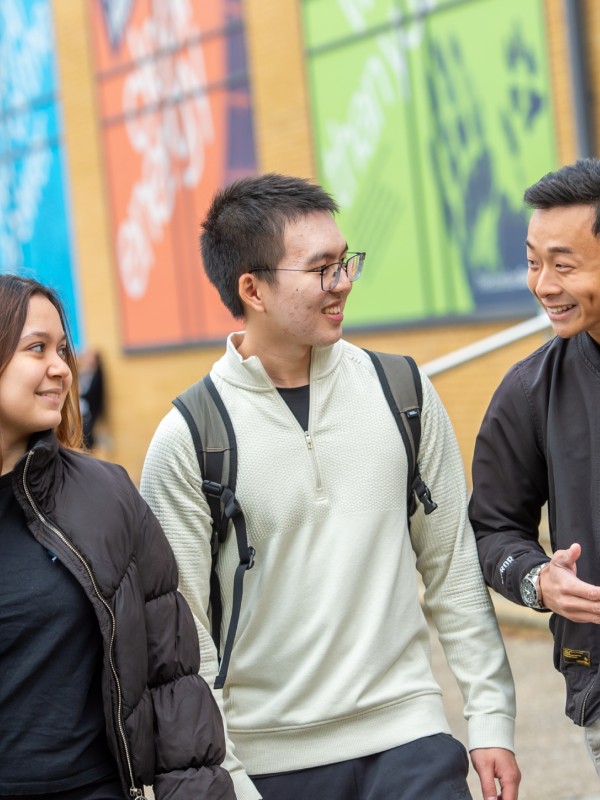
International Tourism Management BSc (Hons)

International Event Management BSc (Hons)
About the university of surrey.

Accommodation
We have a range of housing to suit all requirements and budgets. There are more than 6,000 rooms available (en-suite, single-sex, studio flat, shared or single).

Student life
At Surrey we offer a friendly university campus set in beautiful countryside, with the convenience and social life of bustling Guildford on your doorstep.
Need more information?
Contact our Admissions team or talk to a current University of Surrey student online.
Next open day
- BSc (Hons)View UKA10F0003U
- BSc (Hons) with placementView UKA10S0003U
- BSc (Hons) with foundation yearView UKA10F0035U
- BSc (Hons) with foundation year and placementView UKA10S0036U
Terms and conditions
When you accept an offer to study at the University of Surrey, you are agreeing to follow our policies and procedures , student regulations , and terms and conditions .
We provide these terms and conditions in two stages:
- First when we make an offer.
- Second when students accept their offer and register to study with us (registration terms and conditions will vary depending on your course and academic year).
View our generic registration terms and conditions (PDF) for the 2023/24 academic year, as a guide on what to expect.
This online prospectus has been published in advance of the academic year to which it applies.
Whilst we have done everything possible to ensure this information is accurate, some changes may happen between publishing and the start of the course.
It is important to check this website for any updates before you apply for a course with us. Read our full disclaimer .
- JEE Main 2024
- MHT CET 2024
- JEE Advanced 2024
- BITSAT 2024
- View All Engineering Exams
- Colleges Accepting B.Tech Applications
- Top Engineering Colleges in India
- Engineering Colleges in India
- Engineering Colleges in Tamil Nadu
- Engineering Colleges Accepting JEE Main
- Top IITs in India
- Top NITs in India
- Top IIITs in India
- JEE Main College Predictor
- JEE Main Rank Predictor
- MHT CET College Predictor
- AP EAMCET College Predictor
- GATE College Predictor
- KCET College Predictor
- JEE Advanced College Predictor
- View All College Predictors
- JEE Advanced Cutoff
- JEE Main Cutoff
- JEE Advanced Answer Key
- JEE Advanced Result
- Download E-Books and Sample Papers
- Compare Colleges
- B.Tech College Applications
- KCET Result
- MAH MBA CET Exam
- View All Management Exams
Colleges & Courses
- MBA College Admissions
- MBA Colleges in India
- Top IIMs Colleges in India
- Top Online MBA Colleges in India
- MBA Colleges Accepting XAT Score
- BBA Colleges in India
- XAT College Predictor 2024
- SNAP College Predictor
- NMAT College Predictor
- MAT College Predictor 2024
- CMAT College Predictor 2024
- CAT Percentile Predictor 2023
- CAT 2023 College Predictor
- CMAT 2024 Answer Key
- TS ICET 2024 Hall Ticket
- CMAT Result 2024
- MAH MBA CET Cutoff 2024
- Download Helpful Ebooks
- List of Popular Branches
- QnA - Get answers to your doubts
- IIM Fees Structure
- AIIMS Nursing
- Top Medical Colleges in India
- Top Medical Colleges in India accepting NEET Score
- Medical Colleges accepting NEET
- List of Medical Colleges in India
- List of AIIMS Colleges In India
- Medical Colleges in Maharashtra
- Medical Colleges in India Accepting NEET PG
- NEET College Predictor
- NEET PG College Predictor
- NEET MDS College Predictor
- NEET Rank Predictor
- DNB PDCET College Predictor
- NEET Result 2024
- NEET Asnwer Key 2024
- NEET Cut off
- NEET Online Preparation
- Download Helpful E-books
- Colleges Accepting Admissions
- Top Law Colleges in India
- Law College Accepting CLAT Score
- List of Law Colleges in India
- Top Law Colleges in Delhi
- Top NLUs Colleges in India
- Top Law Colleges in Chandigarh
- Top Law Collages in Lucknow
Predictors & E-Books
- CLAT College Predictor
- MHCET Law ( 5 Year L.L.B) College Predictor
- AILET College Predictor
- Sample Papers
- Compare Law Collages
- Careers360 Youtube Channel
- CLAT Syllabus 2025
- CLAT Previous Year Question Paper
- NID DAT Exam
- Pearl Academy Exam
Predictors & Articles
- NIFT College Predictor
- UCEED College Predictor
- NID DAT College Predictor
- NID DAT Syllabus 2025
- NID DAT 2025
- Design Colleges in India
- Top NIFT Colleges in India
- Fashion Design Colleges in India
- Top Interior Design Colleges in India
- Top Graphic Designing Colleges in India
- Fashion Design Colleges in Delhi
- Fashion Design Colleges in Mumbai
- Top Interior Design Colleges in Bangalore
- NIFT Result 2024
- NIFT Fees Structure
- NIFT Syllabus 2025
- Free Sample Papers
- Free Design E-books
- List of Branches
- Careers360 Youtube channel
- IPU CET BJMC
- JMI Mass Communication Entrance Exam
- IIMC Entrance Exam
- Media & Journalism colleges in Delhi
- Media & Journalism colleges in Bangalore
- Media & Journalism colleges in Mumbai
- List of Media & Journalism Colleges in India
- Free Ebooks
- CA Intermediate
- CA Foundation
- CS Executive
- CS Professional
- Difference between CA and CS
- Difference between CA and CMA
- CA Full form
- CMA Full form
- CS Full form
- CA Salary In India
Top Courses & Careers
- Bachelor of Commerce (B.Com)
- Master of Commerce (M.Com)
- Company Secretary
- Cost Accountant
- Charted Accountant
- Credit Manager
- Financial Advisor
- Top Commerce Colleges in India
- Top Government Commerce Colleges in India
- Top Private Commerce Colleges in India
- Top M.Com Colleges in Mumbai
- Top B.Com Colleges in India
- IT Colleges in Tamil Nadu
- IT Colleges in Uttar Pradesh
- MCA Colleges in India
- BCA Colleges in India
Quick Links
- Information Technology Courses
- Programming Courses
- Web Development Courses
- Data Analytics Courses
- Big Data Analytics Courses
- RUHS Pharmacy Admission Test
- Top Pharmacy Colleges in India
- Pharmacy Colleges in Pune
- Pharmacy Colleges in Mumbai
- Colleges Accepting GPAT Score
- Pharmacy Colleges in Lucknow
- List of Pharmacy Colleges in Nagpur
- GPAT Result
- GPAT 2024 Admit Card
- GPAT Question Papers
- NCHMCT JEE 2024
- Mah BHMCT CET
- Top Hotel Management Colleges in Delhi
- Top Hotel Management Colleges in Hyderabad
- Top Hotel Management Colleges in Mumbai
- Top Hotel Management Colleges in Tamil Nadu
- Top Hotel Management Colleges in Maharashtra
- B.Sc Hotel Management
- Hotel Management
- Diploma in Hotel Management and Catering Technology
Diploma Colleges
- Top Diploma Colleges in Maharashtra
- UPSC IAS 2024
- SSC CGL 2024
- IBPS RRB 2024
- Previous Year Sample Papers
- Free Competition E-books
- Sarkari Result
- QnA- Get your doubts answered
- UPSC Previous Year Sample Papers
- CTET Previous Year Sample Papers
- SBI Clerk Previous Year Sample Papers
- NDA Previous Year Sample Papers
Upcoming Events
- NDA Application Form 2024
- UPSC IAS Application Form 2024
- CDS Application Form 2024
- CTET Admit card 2024
- HP TET Result 2023
- SSC GD Constable Admit Card 2024
- UPTET Notification 2024
- SBI Clerk Result 2024
Other Exams
- SSC CHSL 2024
- UP PCS 2024
- UGC NET 2024
- RRB NTPC 2024
- IBPS PO 2024
- IBPS Clerk 2024
- IBPS SO 2024
- CBSE Class 10th
- CBSE Class 12th
- UP Board 10th
- UP Board 12th
- Bihar Board 10th
- Bihar Board 12th
- Top Schools in India
- Top Schools in Delhi
- Top Schools in Mumbai
- Top Schools in Chennai
- Top Schools in Hyderabad
- Top Schools in Kolkata
- Top Schools in Pune
- Top Schools in Bangalore
Products & Resources
- JEE Main Knockout April
- NCERT Notes
- NCERT Syllabus
- NCERT Books
- RD Sharma Solutions
- Navodaya Vidyalaya Admission 2024-25
- NCERT Solutions
- NCERT Solutions for Class 12
- NCERT Solutions for Class 11
- NCERT solutions for Class 10
- NCERT solutions for Class 9
- NCERT solutions for Class 8
- NCERT Solutions for Class 7
- Top University in USA
- Top University in Canada
- Top University in Ireland
- Top Universities in UK
- Top Universities in Australia
- Best MBA Colleges in Abroad
- Business Management Studies Colleges
Top Countries
- Study in USA
- Study in UK
- Study in Canada
- Study in Australia
- Study in Ireland
- Study in Germany
- Study in China
- Study in Europe
Student Visas
- Student Visa Canada
- Student Visa UK
- Student Visa USA
- Student Visa Australia
- Student Visa Germany
- Student Visa New Zealand
- Student Visa Ireland
- CUET PG 2024
- IGNOU B.Ed Admission 2024
- DU Admission 2024
- UP B.Ed JEE 2024
- LPU NEST 2024
- IIT JAM 2024
- IGNOU Online Admission 2024
- Universities in India
- Top Universities in India 2024
- Top Colleges in India
- Top Universities in Uttar Pradesh 2024
- Top Universities in Bihar
- Top Universities in Madhya Pradesh 2024
- Top Universities in Tamil Nadu 2024
- Central Universities in India
- CUET DU Cut off 2024
- IGNOU Date Sheet
- CUET DU CSAS Portal 2024
- CUET Response Sheet 2024
- CUET Result 2024
- CUET Participating Universities 2024
- CUET Previous Year Question Paper
- CUET Syllabus 2024 for Science Students
- E-Books and Sample Papers
- CUET Exam Pattern 2024
- CUET Exam Date 2024
- CUET Cut Off 2024
- CUET Exam Analysis 2024
- IGNOU Exam Form 2024
- CUET PG Counselling 2024
- CUET Answer Key 2024
Engineering Preparation
- Knockout JEE Main 2024
- Test Series JEE Main 2024
- JEE Main 2024 Rank Booster
Medical Preparation
- Knockout NEET 2024
- Test Series NEET 2024
- Rank Booster NEET 2024
Online Courses
- JEE Main One Month Course
- NEET One Month Course
- IBSAT Free Mock Tests
- IIT JEE Foundation Course
- Knockout BITSAT 2024
- Career Guidance Tool
Top Streams
- IT & Software Certification Courses
- Engineering and Architecture Certification Courses
- Programming And Development Certification Courses
- Business and Management Certification Courses
- Marketing Certification Courses
- Health and Fitness Certification Courses
- Design Certification Courses
- Specializations
- Digital Marketing Certification Courses
- Cyber Security Certification Courses
- Artificial Intelligence Certification Courses
- Business Analytics Certification Courses
- Data Science Certification Courses
- Cloud Computing Certification Courses
- Machine Learning Certification Courses
- View All Certification Courses
- UG Degree Courses
- PG Degree Courses
- Short Term Courses
- Free Courses
- Online Degrees and Diplomas
- Compare Courses
Top Providers
- Coursera Courses
- Udemy Courses
- Edx Courses
- Swayam Courses
- upGrad Courses
- Simplilearn Courses
- Great Learning Courses
B.Sc Hospitality and Travel Course, Admissions, Eligibility, Syllabus, Fees, Career
B.Sc or Bachelor of Science in Hospitality and Travel is a three-year degree course. The degree program is divided into six semesters. It focuses on leisure and equips students with leadership, operational skills, and creating new knowledge in the travel or hospitality arenas. The degree programme covers different modules such as management, marketing, hospitality and Travel , hotel management , customer service management, and tourism .
Announcement: Register for India's Biggest Education Expo
New: B.Sc quick guide | Top B.Sc. Colleges in India
Latest: CUET 2024 Companion | Liberal Arts Complete Guide
Highlights - B.Sc Hospitality and Travel
B.sc hospitality and travel eligibility criteria, b.sc hospitality and travel admissions, top entrance exams for b.sc in hospitality and travel, b.sc hospitality and travel skills required, b.sc hospitality and travel syllabus, b.sc hospitality and travel fee structure, scope of b.sc hospitality and travel, career options after b.sc hospitality and travel, list of popular career options after completing b.sc in hospitality and travel, list of top companies, benefits of studying b.sc hospitality and travel, expected salary after b.sc hospitality and travel, browse b.sc hospitality and travel colleges in india, list of top 10 b.sc hospitality and travel colleges in india, top private b.sc hospitality and travel colleges in india, top government b.sc hospitality and travel colleges in india.
B.Sc in Hospitality and Travel is suited for candidates who are interested in managing hospitality and travel activities. Candidates wishing to pursue the B.Sc Hospitality and Travel course must have completed their 10+2 in any discipline. It offers a vast variety of job opportunities after graduation across service sectors.
The eligibility criteria for B.Sc Hospitality and Travel varies from college to college. Students who complete 10+2 from a recognized board can pursue the B.Sc Hospitality and Travel degree course. There are various entrance exams such as IPU CET, UGAD, NCHMCT JEE, MAH HM CET, and others that provide admission to the undergraduate degree course in top colleges in India . Students must fulfill the following requirements:
Students must have cleared 10+2 from a recognized institute or college in any stream.
Students must hold 10+2 with English as a core subject with a minimum aggregate of 55 per cent or above marks.
Students must clear the entrance test with the required cutoff specified by the institute.
The B.Sc admission process for Hospitality and Travel is different for every college. Various institutes offer admission on the basis of entrance exam scores and class 12th. Some institutes also called students for the group discussion followed by personal interviews. Students are required to clear the entrance exam depending on the institute’s requirements. Some of the important steps for getting admission to top colleges are listed below:
Students are required to appear for the entrance exams depending on the institute to which they are applying for admission. It can be any entrance exams like IPU CET, UGAD, NCHMCT JEE, MAH HM CET, and others.
Students must obtain a minimum of 55 percent in the 12th to get admission to the required institute of their choice.
Some institutes offer admission on the basis of marks scored during the entrance exam process.
IPU CET : Indraprastha University common entrance test is conducted to grant admission into the Undergraduate as well as postgraduate courses. For those students who cleared the test, counselling sessions would be organized for the students. The exam is conducted in computer-based mode.
UGAD : Under Graduate Aptitude Test offers admission to various courses. Students wishing to pursue a course in Hospitality and Travel can appear for the examination. The test takes place once a year.
LPUNEST: LPUNEST is a university-level examination for getting admission to a course in Lovely Professional University. The examination takes place once a year in an online mode.
Also Read: LPUNEST Exam Dates
CUET : It is a university-level examination conducted by Christ Deemed University. Candidates interested in taking the admission in Hospitality and Travel courses must appear for the entrance exam in Christ University.
NCHMCT JEE: The National Council for Hotel Management Joint Entrance Examination is a computer-based examination for getting admission to the top colleges in India. Around 74 participating institutes offer admission to candidates based on their performance in NCHMCT JEE. All the important information about the test are listed below:
In order to pursue B.Sc in Hospitality and Travel, candidates must possess certain key skills in order to perform to the best of their abilities in the industry. Candidates need to have impressive personalities and handle people effectively. Besides this, a humble attitude with excellent communication skills is essential for candidates to make a career in this field. Some of the key skills required for the B.Sc in Hospitality and Travel are as follows:
B.Sc Hospitality and Travel syllabus covers different modules such as management , marketing, hospitality, hotel management, customer service management , and tourism. The syllabus varies from college to college. Some of the subjects which are offered in almost all the institutions have been given below:
Fee Structure for B.Sc Hospitality and Travel ranges from Rs.10,000 to Rs. 5 Lakhs. The fee structure varies from institute to institute depending on whether the college is private or public, ranking, and other factors.
After completing the degree, students can start working in hotels, restaurants, airlines, travel agencies, reputed firms, among others. Students can choose from a variety of roles that include hotel Manager, Front Office Manager, Food and Beverage Manager , chef , Cabin Crew, Travel Consultant and Travel Coordinator. Students can opt for postgraduation in hospitality and travel. A hospitality and travel degree holder can earn an average salary of up to 5 Lakhs per annum. Students interested in higher degrees can go for M.Sc. in the same field.
B.Sc Hospitality and Travel is a multi-billion dollar industry that offers ample job possibilities to students after graduation across various sectors. They can start working with the airlines, transportation services, hotels, or they can also apply for travel agencies. Candidates after their degree can start their own venture. With a degree in hand, candidates get opportunities across the world as multinational companies need professionals in the hospitality and travel industry.
Hotel Manager : A Hotel Manager is in charge of the overall care of the hotel. He or She manages, supervises the work in all the departments. They are responsible for everything to ensure the customer receives the best possible service.
Cabin Crew: Those professionals who are responsible for the safety of passengers in the aircraft. They serve refreshments, assist and sell different shopping items to the passengers during the flight operation.
Travel Planner : He or She takes care of the travel requirements of the companies and other entities. They book travelling tickets, lodging, and coordinate between different organizations to ensure that travel needs are met within the company’s travel budget.
Housekeeping Manager: Housekeeping managers are responsible for looking after the housekeeping department. They ensure proper planning of daily tasks including laundry, cleanliness, and the housekeeping team.
Raddison Blu
Indigo Airlines
Hyatt Hotels
The Taj Group of Hotels
The Leela Palaces
Intercontinental Hotels & Resorts Group
Country Inn and Suites
Hilton Worldwide
Hospitality and travel is a vast industry with ample job opportunities for candidates across various sectors. The demand for hospitality and travel professionals is increasing with time. Candidates can start working after the bachelor’s degree and choose a variety of profiles in multinational companies abroad for having better opportunities and handsome salaries. Students can also opt for higher studies like postgraduation, M.Phil , or other degrees.
The Hospitality and Travel industry has ample job opportunities across the world. The billion-dollar industry offered handsome salaries and lucrative opportunities to professionals. After pursuing B.Sc in Hospitality and Travel, a candidate with less than one year of experience can avail of an average salary of Rs. 3.87 Lakhs. After gaining experience for two years, the salary can go up to Rs 5 Lakhs. The top-level salary for a professional with five years of experience is around Rs 9 Lakhs per annum. The salary could be more if working abroad.
Source: PayScale India
These colleges offer B.Sc Hospitality and Travel in India. The fee structure varies from college to college. Some of the top universities or colleges are as follows:
In India, there are several colleges offering B.Sc Hospitality and Travel courses. The admission to these colleges is based on the entrance exam. The fees vary from college to college. Some of the top colleges are as follows:
In India, several private colleges offering B.Sc Hospitality and Travel are highly performed colleges. The admission to these colleges is based on entrance exam merit. They have performed quite well as compared to other institutes. Some of the top private colleges in India are:
The government colleges offering B.Sc Hospitality and Travel is a 3-years degree course. With such performance, these top government colleges have been recognized for their academic and placement statistics globally.
Frequently Asked Question (FAQs)
Hospitality and Travel is a three-year bachelor’s degree divided into six semesters. The course focuses on marketing, management, hotel management, travel, and leadership skills.
The Hospitality and Travel industry is a good career choice. After completing a course, candidates can work in several areas of their choice such as aviation, hotels, travel services, transportation, and many more.
Students must have completed 10+2 with English as the core subject. He or She must clear the entrance examination for the course admission.
Some of the top entrance exams are IPU CET, UGAD, NCHMCT JEE, MAH HM CET, and others.
The average salary for the B.Sc Hospitality and Travel graduate is around 6 Lakhs.
The top recruiters who employ candidates after completing B.Sc Hospitality and Travel degree are Raddison Blu, Air India, Vistara, Indigo Airlines, Hyatt Hotels, MakeMyTrip, The Taj Group of Hotels, The Leela Palaces, Intercontinental Hotels & Resorts Group, and many more.
Some of the best jobs are Hotel Manager, Food and Beverage Manager, Housekeeping Manager, Chef, Cabin Crew, Travel Coordinator, Front Office Manager, and others.
The minimum percentage for the students who opt for B.Sc in Hospitality and Travel is 55 percent or above.
The fee for the B.Sc Hospitality and Travel degree course is around Rs. 10,000 to Rs. 5 Lakhs.
Some of the specializations are BBA in Hotel and Tourism Management , BSc in Hospitality, BSc in Hospitality and Tourism Studies, Bachelor of International Business in Hotel and Tourism Management.
- Latest Articles
Upcoming Exams
Chennai mathematical institute entrance exam.
Result Date : 19 June,2024
Certifications By Top Providers
- Most Viewed
Explore Top Universities Across Globe
- Universities
- Popular Articles
Popular Courses and Specializations
Popular degrees.
- B.Sc.(Hons)
Popular Branches
- Mathematics
Popular Courses
- MBA Sustainability Management Course, Subjects, Exams, Admission, Colleges, Fees, Career
- MBA Forest Management: Course, Admission 2024, Colleges, Syllabus, Fees, Career
- MA in Public Administration Course, Admissions, Eligibility, Syllabus, Fees, Career
- M.A. HRM (Master of Arts in Human Resource Management)
- B.Sc. in Animation - Course, Eligibility, Syllabus, Colleges, Fees, Career Scope
List of B.Sc. colleges
- Courses & Fees
Related E-books & Sample Papers
Top ugc approved colleges for online b.sc.
20 + Downloads
Questions related to B.Sc.
Following are some of the colleges which offer B. Sc radiology course without NEET:
- Apex University, Jaipur.
- Jagannath University, Jaipur.
- Teerthanker Mahaveer University, Moradabad.
- Vinayaka Missions University, Salem.
- Jagannath University, Jhajjar.
- Arni University, Kathgarh.
- Chaitanya University, Hanamkonda.
- RIMT University, Gobindgarh.
- Khalsa College of Engineering and Technology, Amritsar.
- Sushant University, Gurgaon.
Hope this information will help you. Best wishes ahead!
No, you likely don't need to select "Bachelor of Science (autonomous)" while filling the Mumbai University form for a BSc in Microbiology if you're interested in the standard program offered by the university itself. Mumbai University has its own affiliated colleges offering various undergraduate programs, including BSc in Microbiology. You would be applying for a seat under the university department for this course, not an autonomous college. Look for options mentioning "BSc Microbiology" or similar wording while filling the application form. It might be listed under the "Sciences" or "Life Sciences" category.The Mumbai University application form might also have a separate section for applying to affiliated colleges. This section is typically for courses not offered by the university itself. You can choose to ignore this section if you're primarily interested in the standard BSc Microbiology program offered by Mumbai University. https://www.careers360.com/university/university-of-mumbai-mumbai I hope it helps!
No you won't be able to get admission to second year of bams after bsc nursing without neet.
For pursuing baks you will have to appear for Neet. Neet is the sole entrance exam and a door way to various medical courses such as mbbs, bds, Physiotherapy, bams, bhms, Ayush and even veterinary science.
Eligibility to pursue bams is to have passed class xii with minimum 50% marks in physics, chemistry and biology from any reputed university.
The qualifying marks for neet for General category is 50 percentile.
These are some of the government colleges which offer B.Sc Anaesthesia courses:
- National Institute of Mental Health and Neuro Sciences, Bangalore.
- Jawaharlal Institute of Postgraduate Medical Education and Research, Puducherry.
- All India Institute of Medical Sciences, Rishikesh.
- Government Medical College and Hospital, Chandigarh.
- Homi Bhabha Cancer Hospital, Sangrur.
- Goa Medical College, Panaji.
- Sri Venkateswara Institute of Medical Sciences, Tirupati.
- Dr Rajendra Prasad Government Medical College, Tanda.
Hope this answers your query. Best wishes ahead!
These are some of the best colleges affiliated to DU for B.Sc psychology:
- Hindu College.
- Lady Shri Ram College For Women.
- Kamala Nehru College.
- Miranda House.
- Gargi College.
- Lakshmibai College.
- Daulat Ram College.
- Atma Ram Sanatan Dharma College.
- Aryabhatta College.
- Bhim Rao Ambedkar College
Download Careers360 App's
Regular exam updates, QnA, Predictors, College Applications & E-books now on your Mobile
Certifications
We Appeared in
Strathmore School of Tourism and Hospitality

- Madaraka Estate, Nairobi, Kenya
- (+254) (0) 703-034000/200/300
- [email protected]
BSc in Hospitality Management
The BSc in Hospitality Management programme (BHM) exposes the students to an environment oriented to both business and hotel operations and management. The BHM curriculum is a combination of theory and practice where the students are exposed to hands-on training in food and beverage production and service and in rooms division management within the Strathmore facility and in the hotels where they will do their attachment and internship.
The students acquire not only technical and management skills but also the necessary soft skills such as spirit of service, social etiquette, personal responsibility, commitment and teamwork.
The BHM graduates will be better equipped to work in hotels as well as in various service organizations such as resorts, restaurants, airlines, cruise ships, hospitals, conventions and conference facilities and banqueting, or venture into business start-up of events management and outside catering and lodging houses.
All students are required to take the compulsory humanity units that include philosophy, ethics, communication skills and foreign languages which enable the students to attain a holistic development.
Both hospitality and tourism students do the common units together such as management subjects, accounting, economics, marketing, business management and entrepreneurship, statistics and research methods. All students are required to submit a research project in any area related to hospitality and tourism as a final requirement to attaining the degree.
BSc in Hospitality Management (BHM) has the following core subjects of specialization:
- Food and Beverage Production I, II and III
- Food and Beverage Service I and II
- Food and Beverage Management
- Housekeeping and Laundry Techniques
- Housekeeping and Laundry Supervision
- Front Office and Customer Service
- Hotel Information Systems
- Accommodation Management
- Essentials of Menu Planning and Costing
- Hospitality Operations Management
- Bar Operations Management
- Food Related Microorganisms and Diseases
- Hospitality Facilities Management
- Management Accounting for Hospitality
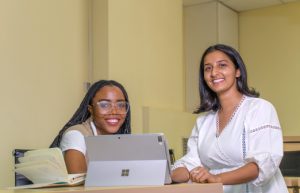
For practical classes, the students do the food production in the STH kitchen laboratory while service practice is done in the Snack Bar.
The BHM degree programme requires all students to do 200 hours of community-based attachment after their first year of study and 3 months of industrial attachment in top hotels at the end of the second year and third year of study. The BHM graduates will be better equipped to work in hotels as well as in various service organizations such as resorts, healthcare institutions, airlines and schools, in a supervisory and managerial level. They will be able to plan for and manage food and beverage operations, hotel accommodation, front office operations, events and conventions as well as customer relations. They can also venture into business start-ups of a restaurant, events management services, catering service or lodging house.
Application Form
Related programs, download documents.
Once you submit your details, you will get access to the files.
Want to Know More About our Programs?

BSc Tourism and Hospitality Management
We are #openforlearning.
We offer globally-accredited degrees and courses taught by the region’s finest academics in world-class facilities.
Our aim is to provide you with a learning environment in which you can strengthen your skills as a self-directed learner and enhance your capacity to interact and collaborate with your peers, share experiences, challenge accepted ideas and build new knowledge.

Need help choosing a programme?
Ask a programme advisor. Choose the programme that best suits your life goals..
View programme advising:
Undergraduate Graduate
Start Date September/January
Duration 3/4 Years
Modality Online
BSc. Tourism and Hospitality Management
Introduction
Tourism and hospitality management remains one of the world’s largest and fastest growing sectors, and this trend is predicted to continue. The tourism and hospitality sector is a major contributor to the Gross Domestic Product (GDP) of countries within the Caribbean region. The industry not only provides various employment opportunities within its sector, but it also impacts several business entities whose goods and services are utilized.
About the Programme This BSc Tourism and Hospitality Management programme prepares individuals to become professionals with the required knowledge, skills and competencies to function effectively in the workplace. The programme is designed to offer individuals:
• Outstanding academic and professional development needed by individuals employed or aspiring to be employed to the sector • Relevant and current core and specialized courses designed for graduates to enter leadership positions • Lead cutting-edge technology skills and best practices required to meet the present and future needs of the sector • Strong interpersonal and communication skills for effective performance in the workplace
Who is this programme for?
The BSc Tourism and Hospitality Management programme targets persons who are currently working, or are desirous of working in any of the numerous areas of tourism and hospitality management within government ministries, private sector entities, non-governmental organizations, educational institutions, and any other persons with an interest in the field of study.
Duration of Programme The programme will be offered over 3 years (full-time) and 5 years (part-time).
Delivery Mode All courses will be delivered fully online. However, some courses may have face-to-face final examinations.
When will the programme start?
This offering of the programme begins in September 2020.
Entry Requirements
Applicants must meet the University’s normal matriculation requirements in order to be accepted into the programme. They must satisfy the requirements in either (a), (b), (c) or (d) below:
(a) Holders with CXC/CSEC and CAPE/GCE A Level qualifications having:
• An acceptable pass in CXC/CSEC English A or CAPE Communications Studies; AND • An acceptable pass in CXC/CSEC Mathematics or its equivalent; AND • One of the following minimum qualifications: • either five subjects (at least two GCE A Level or CAPE) and the remainder acceptable passes in CXC/CSEC or GCE O’ Level; OR • four subjects (at least three GCE A Level or CAPE) and the fourth an acceptable pass in the CXC/CSEC or GCE O’ Level
Note: Grade requirements for CXC/CSEC subjects are General Proficiency - Grades I or II prior to June 1998 and Grades I, II, or III from June 1998 (b) Holders of five (5) CXC/CSEC or GCE O’ Level passes or equivalent, not necessarily obtained at the same sitting (c) Entrants with a Diploma, Certificate or Associate Degree from UWI or an approved Caribbean tertiary level institution (d) Persons over the age of 21 who have been out of school for at least five years, on the basis of their overall academic and professional attainments
English Language Proficiency Examination
The English Language Proficiency Test (ELPT) is used to assess whether persons applying to pursue undergraduate degree programmes at the UWI Open Campus possess a satisfactory level of writingand reading proficiency in English for university academic purposes. For detailed information on the
ELPT, see English Language Proficiency Test .
Academic Preparation
OOL1001 Orientation to Online
IYRS1001 Improving your Reading Skills
IYSS1001 Improving your Study Skills
IYMS1001 Improving your Math Skills (if applicable)
ECON0001 Remedial Mathematics (if applicable)
Award of Degree In order to be awarded the BSc Tourism and Hospitality Management degree, students must successfully complete all of the courses outlined in the course of study below.
Course of Study
This is an introductory course designed to cover both a practical and theoretical understanding of the principles and concepts involved in the preparation of financial statements. You are exposed to a conceptual analytical approach, with the aim of improving your critical thinking and communication skills, especially in the area of accounting.
In this course, students are sensitized to an understanding of current cost and management accounting theory and practice. Emphasis is placed on the concepts and procedures of product costing, the tools of managerial accounting such as C-V-P analysis and budgeting, as well as, strategies that help the manager to perform the functions of planning, controlling and decision making. This prerequisite knowledge provides the foundation for the levels II & III Management Accounting courses. The course makes use of some simple mathematical concepts including the basic mathematical operations, solving simple linear equations and graphing linear functions.
This course introduces students to the basic tools and concepts of economics. Students will be exposed to the core principles of economics: the role of incentives; the idea of scarcity; how to measure the cost of a choice; what is a market; and the purpose of prices. Students will be introduced to the toolkit of methods used by economists. At the end of this course students should be able to engage the core principles of the methodology of economics in everyday use.
This Course is designed to build on students’ understanding of elementary mathematics and to expose them to some of the mathematical concepts that will be used in the study of various models in economics and management sciences. It begins with the topic of functions and moves seamlessly into equations and inequalities. These draw on the student’s prior experience in areas of algebra and coordinate geometry. It then moves the equally interesting area of sequences. This is followed by some matrix algebra then into the topic of limits and continuity, it ends with differentiation with some applications to the social sciences. Emphasis will be placed on the understanding and application of mathematical concepts rather than on computational skills, the use of algorithms and the manipulation of a formula.
Recommended that you first attempt in Semester 1
Assessment: 40% Coursework, 60% Final exam
This course introduces students to the art and science of statistics. Topics covered are: the collection and compilation of data, descriptive statistics, probability distributions, estimation, hypothesis testing and simple regression and correlation. Teaching is accompanied by computer applications using MINITAB software.
This is a cross-disciplinary course. It is designed to provide a firm base for Communication courses and for courses in English for Special Purposes linked with specific disciplines. It helps students to achieve the level of competence in written language that is required of the university student in undergraduate programmes. Course content includes Language in the Caribbean, Summarizing, the Formal Essay and Methods of Organising Information.
This course is designed to develop an awareness of the main process of cultural development in Caribbean societies, highlighting the factors, the problematic and the creative output that have fed the emergence of Caribbean identities. It also develops a perception of the Caribbean as wider than island nations or linguistic blocs and stimulates students’ interest in, and commitment to Caribbean civilization and to further their self-determination.
FOUN1501 Foundations for Learning Success Credits: 3
This course deals with the basics, major concepts and principles of computers and computing. Topics covered will include: evolution and classification of computers, computer hardware, software and data communications; computer data processing; and microcomputers in business.
The course is designed to introduce learners to the major aspects of management principles. It will expose them to the corpus of knowledge required to assist an organisation to achieve its objectives. It provides important information intended to expose learners to the intricacies of managing enterprises - be these private or public, corporate or small business enterprises, and government or nongovernmental organisations.
The need for Caribbean businesses to expand operations internationally and earn foreign exchange particularly during challenging economic times is critical. This course provides an overview of the international business environment and an introduction to various types of decisions made by international business managers. It is a survey course, which covers many topics, despite not addressing these topics in depth. Students will have an opportunity to explore topics of particular interest in more detail through a research project.
The course MGMT 2021 focuses primarily on contract law since contract law is the basis of commercial law. However, in order to situate commercial law in its broader context, this course also exposes students to elements of criminal law which deals with public wrongs as well as fundamental aspects of tort law that encompasses civil wrongs. The overarching framework however begins with an in-depth exploration of our legal system which lays the foundations for understanding the origin and sources of law, as well as the functioning of the legal infrastructure such as the court system. Finally, students are exposed to consumer law and aspects on Internet law, as these are becoming increasingly important in understanding commercial relationships in the digital age.
MGMT2023 Financial Management I Credits:
Thiscourse introducesstudentstophilosophical perspectives,principles,and processes for designing qualitative, quantitative and mixed methods research. It aims to particularly expose students to the use of theory in research designs, knowledge of the main components of a research framework - problem definition, research design, data collection & analysis, and ethical considerations in conducting research. The course highlights the importance of the key role that research plays in decision-making process of businesses.
This course seeks to introduce students to the fundamentals of organisational behaviour and human resource management. The course introduces the students to some of the factors that shape behaviour in organisations, the types of options and strategies managers use to shape behaviour, and the responses of individuals and groups to these strategies. This course also examines the role of the HR professional. Students will learn about the evolution of human resource management with emphasis on the importance of HRM in today’s world.
The aim of this course is to provide students with an understanding of the contemporary project management discipline from a ‘best practice’ perspective, and to enable them to extract from best practices, the specific applications that will enhance the probability of success for Caribbean projects. The types of projects used for illustration purposes will include innovative efforts in renewable energy to the building of complex resort properties to enhance tourism options, as well as, agricultural and other projects which are predominantly located in the Caribbean region.
This course aims to expose and familiarize students with key ideas in entrepreneurial thinking. It introduces students to the processes by which entrepreneurs identify business ideas, assess and analyze their feasibility and develop strategies to convert them into successful business. Additionally, it exposes students to the best practices employed in developing high quality internationally competitive goods and services.
This course is intended to provide students with a conceptual framework and analytical skills necessary for the analysis of markets and marketing activities of firms in a dynamic environment. It will introduce students to some of the basic concepts and principles of marketing and to some real-world marketing situations. It also takes into consideration the unique business culture of the Caribbean.
TOUR2000 International Tourism Credits:
TOUR2003 Tourism Planning & Development Credits:
HOSP3222 Hospitality Consumer Behaviour Credits:
HOTL3000 Resort Operations Credits:
This course is designed to give you an understanding of the theoretical and practical aspects relating to how organizations in the public and private sectors operate in an environment where it is critical to develop and implement strategies in order to gain and or maintain competitive advantage. The course requires also that you reflect on the knowledge gained from previous courses. Some of the major concepts that will be covered include, SWOT analysis, vision and mission, competitive analysis, corporate, competitive and global strategies, value chain analysis, competitive advantage and successful strategy execution, among others.
MGMT3116 Research Project/Practicum Credits: 6
TOUR3001 Sustainable Tourism Credits:
TOUR3010 Sports Tourism Credits:
TOUR3011 Culture & Heritage Toursim Credits:
TOUR3012 Community-based Tourism Credits:
TOUR3015 Tourism & Hospitality Plant Management Credits:
The University of the West Indies Global Campus Bridgetown, St. Michael Barbados
Information About
- Admissions & Aid
- Administration
- Academic Calendar
- Campus Life
Information For
- Future Students
- Current Students
- Undergraduates
- Faculty & Staff
- Media Centre

© Copyright 2004-2024 | Disclaimer | Privacy Statement
Emergency Contacts | --> Campus Contacts | Campus Map | CATS Helpdesk
- We’re on your favourite socials!
BSc in Travel & Tourism Management
- Popular Colleges
- About B.Sc in Travel & Tourism Management
B.Sc in Travel & Tourism Management is a three-year program divided into six semesters. Tourism management is the study of the latest trends and technology in the tourism industry and there are many programs available for tourism management education. B.Sc in Travel & Tourism Management trains students in leadership skills and knowledge and skills required for a successful career in tourism management. The program will cover topics from the management of tourism and travel activities. Besides this, the program will also cover topics from financial management, marketing management, HR management and customer service management.
B.Sc in Travel & Tourism Management is ideally suited for the candidates who are interested in managing travel and tourism activities. There are many B.Sc in Travel & Tourism Management offering colleges in India. Candidates may enrol at any college offering B.Sc in Travel & Tourism Management after checking the fees and courses offered.
B.Sc in Travel & Tourism Management Highlights
Check the major highlights of the BSc in Travel & Tourism Management program
Table of Contents
B.sc in travel & tourism management eligibility criteria, b.sc in travel & tourism management syllabus, b.sc in travel & tourism management career options and job prospects, faqs about bsc travel tourism.
Candidates seeking admission to B.Sc in Travel & Tourism Management can go through the eligibility criteria provided below.
They must have completed 12th from any recognised institution or university.
Minimum percentage required for admission is 55%. Some colleges might have a different percentage limit for the general category and reserved category.
B.Sc in Travel & Tourism Management Selection Process
Candidates seeking admission to the three years B.Sc in Travel & Tourism Management program will be selected on the basis of their academic scores. Colleges will prepare a merit list on the basis of the candidates’ scores in the qualifying examination. Shortlisted candidates will then have to visit the college to confirm their admission. They will also have to submit a copy of the 12th/ 10th mark sheet along with passport-sized photographs.
Top B.Sc in Travel & Tourism Management Colleges in India
Chandigarh University, Chandigarh and Madras Christian College, Chennai are two well-known B.Sc in Travel & Tourism Management colleges in India. Candidates interested in admission to any of these colleges can fill the Common Application Form. They can visit the official website of these colleges to know their fee structure and placements.
Check the table below to know about the syllabus of B.Sc in Travel & Tourism Management.
There are many job opportunities available in the travel and tourism industry. Candidates can work with any Airline, Transportation Service, Hotels after completing B.Sc in Travel & Tourism Management. They can also apply to any travel agency or travel consultancy. Apart from this, they can also start their own business or start their own venture after completing B.Sc in Travel & Tourism Management.
Some of the profiles where the candidates can apply for a job are listed below.
Travel Agency staff
Travel Agent
Travel and Tourism Consultant
Tour Operator
Air hostess
Ticketing staff
Airline employee / Airport staff
Tourist Guide
Entrepreneur
Customer service manager
Tour manager
Event manager
Tourism promoter/ marketer
They can apply to any sector provided below.
Transportation Services
Travel Agencies
Travel & Ticketing Websites
Colleges & Institutions
Visa & Travel Document Service Firms
Travel Consultancy
Tour Operator Offices
What is the average fee for B.Sc in Travel & Tourism Management?
What other programs are available in travel & tourism management, what is the eligibility criteria for b.sc in travel & tourism management, what is the duration of b.sc in travel & tourism management, what is the minimum aggregate required for admission to b.sc in travel & tourism management, where can i apply for a job after b.sc in travel & tourism management, what documents are required for admission in b.sc in travel & tourism management, is the syllabus of b.sc in travel & tourism management same for all colleges, what is the admission process of b.sc in travel & tourism management, who are the top recruiters for b.sc in travel & tourism management, related questions.
Biswajit Chakra , Student / Alumni
Tanisha Gupta , Student / Alumni
Sakunth Kumar , Student / Alumni
Dear Student,
Vyasanagar Autonomous College (Jaipur) will start the admission process for various courses in July. The official notification for 2020-21 academic session yet to be released. As you are aspiring to join a course in Science stream, you can check the links below to explore the list of best B.Sc courses -
List of Best B.Sc Courses after Class 12th
Best Career Options after B.Sc
B.Sc Computer Science vs B.Sc Physics
B.Sc Electronics vs B.Sc Computer Science
B.Sc Chemistry vs B.Sc Microbiology
Related News

Feb 10, 2024 | By: Disha Assawa

Feb 10, 2024 | By: Aman Agarwal
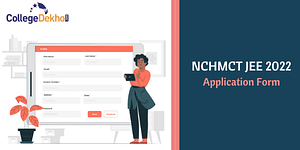
Jan 31, 2024 | By: Yash Dhamija

Jan 31, 2024 | By: Aarushi Jain

Jan 25, 2024 | By: Mahima Gupta

Dec 07, 2023 | By: Rohan Tyagi
Related Articles
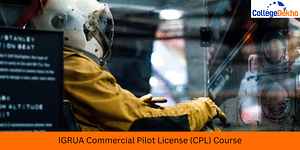
Feb 20, 2024 | By: Shreya Sareen
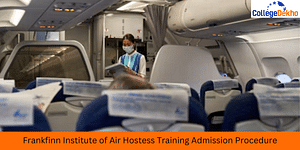
Feb 20, 2024 | By: Sakunth Kumar
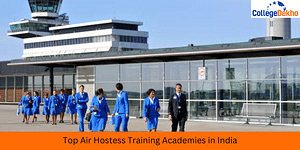
Feb 19, 2024 | By: Simran Saini
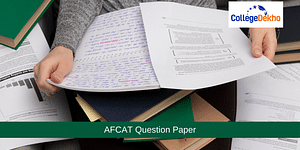
Feb 17, 2024 | By: Aarushi Jain
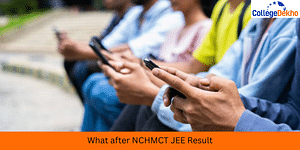
Feb 17, 2024 | By: Yash Dhamija
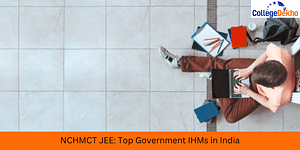
Feb 17, 2024 | By: Anmol Arora

Feb 17, 2024 | By: Aindrila

Feb 16, 2024 | By: Abhishek Rathour

Feb 16, 2024 | By: surbhi sharma
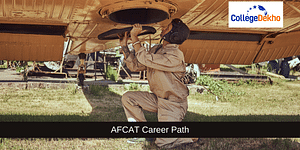
Feb 16, 2024 | By: Kamayani Meghawal
Popular Courses
- B.Sc in Travel & Tourism Management
- Common Application form
- Job Ready Courses
- ETP Admissions
- Scholarships
- Visual Stories (English)
- Visual Stories (Hindi)
- Career Compass
- Write a review
- DU Predictor
- Unit Calculator
Pride Hulkul, 6th floor, No 116, Lalbagh Road, Bengaluru, Karnataka - 560027
Godrej Genesis, 15th floor, 1509, Salt lake Sector 5, Kolkata, West Bengal - 700091
6th & 7th Floor, 29, Moji Colony, Calgiri Marg, Malviya Nagar, Jaipur, Rajasthan - 302017
6th Floor, CollegeDekho Office, Capital Cityscape, Sector 66, Gurugram Haryana 122002
- 1800-572-9877
- [email protected]
Trending Links
- AP ICET Results 2024
- JEE Main College Predictor 2024
- JEE Main Syllabus 2024 PDF
- Top Medical Colleges in India
- JEE Main Rank Predictor 2024
- AP Ecet Rank Card
- Visual Stories
- JEE Mains 2024 Mark Vs Percentile
- CBSE Grading System Class 12
- Engineering Colleges in India
- MBA Courses
- Medical Courses
Most Viewed Links
- Master of Arts
- Aeronautical Engineering
- BFIT Dehradun
- Chandigarh University
- Hindi Articles
- Merchant Navy
- Manipal University or Amity University
- List of B.Sc Courses
- SRM University vs VIT Vellore
- JEE Main 2024
- B.ED Course
- Neet vs JEE Main
Courses in india
- B. Tech : B Tech Mechanical Engineering Software Engineering Aeronautical Engineering Electronics and Communication Engineering Chemical Engineering Biomedical Engineering Automobile Engineering B Tech IT Computer Science Engineering
- M. Tech : M Tech M Tech in Data Science M Tech in Computer Science M Tech in Civil Engineering M Tech in Mining Engineering M Tech in Electrical Engineering M Tech in Food Technology M Tech in Chemical Engineering M Tech Geoinformatics M Tech ECE
- MBA : MBA BBA MBA Project management MBA in finance PGDM Executive MBA BBM MBA in Business Analytics MBA in HR MBA in Marketing
- BBA. : BBA BBA Aviation BBA in Finance BBA International Business BBA in Airport Management BBA Logistics BBA in Digital Marketing BBA in Marketing BBA MBA Integrated Course BBA in HR
- LAW : LLB BA LLB BBA LLB BSc LLB LLM course Criminal Law Labour Law Corporate Law Business Law Company Law
- Science : BSc MSc BSc Computer Science Actuarial Science BSc Biotechnology BSc Microbiology BSc IT BSc Forensic Science BSc Chemistry BSc Physics
- Commerce : BCom MCom Banking Course CA Course CFA BAF ACCA Course MFC BFM BBI Company Secretary
- Medical : MBBS MDS BUMS BDS BHMS Doctor of Medicine Doctorate of Medicine BPT Course MPH BAMS
- Para Medical : BPMT Medical Transcription BMLT MPT Biomechanics BVSC BSMS Anesthesia Course Master of Surgery DHMS Master of Physiotherapy
- Hotel Management : MHA BTTM Hospitality Management BHM MBA in Hotel Management Travel and Tourism Management BHMCT BSc in Hospitality and Hotel Administration Masters in Hotel Management BBA in Hotel Management
- BA : BA Archaeology Company Secretary home science BFA BA Psychology BA English BA english BA Economics
- MA : Master of Arts MPhil MA Hindi MFA MA English MA Psychology MA Economics MA Political Science MA History MA Public Administration
- Media And Mass Communication : Photography Course Journalism Course BMM Fashion Photography BJMS Radio Jockey BSc Visual Communication Masters in Journalism and Mass Communication BA Mass Communication Masters in Mass Communication
- Agriculture : Agricultue BSc Agriculture BSc horticulture MSc agriculture BSc Hons Agri Business Management Diploma in Horticulture BSc Sericulture
- Pharmacy : B Pharma D Pharma Pharm D Course M Pharmacy M Pharm M Pharma Pharmaceutical Analysis M Pharm in Biotechnology B Pharm Hons Pharma D
- Nursing : BSc Nursing GNM Nursing ANM Nursing Post Basic BSc Nursing Nursing Assistant Course OT nursing Course M Phil Nursing MSc Pediatric Nursing MSc in Medical Surgical Nursing Maternity Nursing Course
- Information Technology : MCA Data Science BCA MSc Data Science Ethical Hacking Course MSc IT MBA IT BSc MSc Data Science Computer Hardware Course BBA in Computer Application
- Design : Graphic Designing Interior Designing Animation Jewellery Designing Web Designing Fashion Designing Course Furniture Design Textile Designing Fashion Styling BDes
- Education : B Ed B P ED Diploma in Elementary Education M Ed B EL ED BSc B Ed BA B Ed BEd Special Education MA Education BED in Commerce
Popular Universities
- DOON University
- MNIT Jaipur
- NIT Jalandhar
- NIT Jamshedpur
- NIT Silchar
- TECHNO India University
- TEZPUR University
- University of Hyderabad
- University of Mysore
- VIDYASAGAR University
- ANNA University
- JAYPEE University
- Terms & Conditions
- Privacy Policy
Tourism and Aviation Management BSc (Hons) -->
Apply online.
If you are applying for this course from outside the UK, click apply now
Course starts: 16 September 2024 Apply now
Prepare for a career in the tourism and aviation industry, a global business that connects people and trade throughout the world. Study topics like global tourism, marketing, aviation, safety and security and airline and airport commercial operations.
Global business and international travel are both areas that are rapidly growing and have a vast range of employment positions available worldwide. When studying on the Tourism and Aviation Management degree course you will be provided with a blend of both academic and practical insights around how these industries function and you will be equipped with transferrable skills which can prepare you for work in these areas.
Throughout the duration of your studies, you will benefit from field and site visits, experience bespoke guest lectures from industry-based practitioners, you could study abroad or take a placement year with industry and be supported towards developing your employability for work in these industries.
- Our Hospitality, Event Management and Tourism courses are ranked 12th in the UK (Guardian University Guide, 2024)
- National and international work experience opportunities
- Available as a 4-year sandwich course, on which you can engage in a one-year industrial placement
- Study abroad opportunities and field trips
- Our Tourism, Transport, Travel and Heritage Studies courses are 2nd in the UK for student satisfaction (Complete University Guide 2024)
- We work with TalentView Aviation, supported by the UK Government, it is a free employment hub for students to find jobs in aviation.
Course structure
A typical week for you on the BSc (Hons) Tourism and Aviation Management course will include lectures, seminars, study visits. and group work. These are supported by a range of guest speakers from diverse academic and industry backgrounds. Our teaching team are passionate about their subject and produce world-leading research.
Your progress will be assessed by essays, presentations, portfolios of evidence and project work which will help you to build a range of skills in support of employability.
Course modules
Year 1 (national level 4):, aviation and the environment (20 credits).
Understand the importance of the political, economic, social, regulatory, and technological and environmental factors within the aviation industry. Analyse the environmental challenges affected by the aviation industry, including noise, emissions, and waste management. Discuss regulatory frameworks, including the influence of global and national aviation organisations, changing societal values, climate change, alternative fuels and carbon neutral growth.
Fundamentals of Aviation (20 credits)
Appreciate the growing importance of the aviation industry in the contemporary global economy. Develop your understanding of the scale, scope and structure of the aviation industry. Analyse the key stakeholders, including regulatory bodies, commercial airlines, alliances, airport and terminal services and their roles, as well as the current issues and trends affecting the aviation industry.
Fundamentals of Tourism, Leisure and Hospitality (20 credits)
Gain a fundamental understanding of theories and models appropriate to tourism and hospitality management. Analyse definitions, commonalities and distinctions of tourism and hospitality management. Consider mass and 'niche' products, 'alternative' tourism, transportation, attractions management, National Parks and protected areas, and tourism, society and the environment.
Global Tourism (20 credits)
Profile tourism in various regions and destinations, exploring key issues and impacts associated with the development of tourism via a variety of global case studies. Contextualize the changes and impacts of the tourism phenomenon in destinations beyond the UK. Use illustrative case studies to differentiate the key issues in global tourism on a global regional basis, including Asia, the Pacific, Europe, the Americas and Africa.
Marketing and Business for the Service Sector (20 credits)
Get an introduction to the concepts and functions of marketing and business in the context of the service sector. Explore the economics of the service sector, understanding today’s consumer, product development, marketing and business planning, segmentation and research; distribution channels; marketing communication and advertising.
Study Skills for the Service Sector (20 credits)
Receive training and practice in a range of learning and information skills relating to the service sector. Take part in specific workshops to cover information gathering, critical reading, note-taking, essay writing, group work, and written, graphical and verbal presentation. Develop confidence in taking responsibility for your own learning, be more independent, be a more effective learner and be able to motivate yourself.
Year 2 (national level 5):
Core modules:, aviation, safety and security (20 credits).
Discuss the global security threats, the key health and safety regulations affecting the aviation industry, the employers and employees responsibilities in preventing accidents and incidents, and the acts of terrorism involving civil aviation. Consider the importance of security awareness and compliance, risk management, risk assessment and accident investigation.
Consultancy for the Visitor Economy (20 credits)
Examine and explain aspects of management application from within different organisational contexts. Analyse and evaluate current business practice through appropriate data collection methods, including electronic sources. Derive and formulate feasible, realistic and cogent conclusions and recommendations to specific hospitality, events, aviation or tourism businesses. Reflect on your own expertise by making an application to these businesses via CV and covering letter.
Current Issues in Tourism and Hospitality (20 credits)
Explore current, important conceptual and practical issues relating to tourism development and management, and gain theoretical context for contemporary debates. Focus on critical debates, developments and case-studies of tourism development with information drawn from a range of sources. Consider media representations of tourism products, motivations and the processes of tourism development, management and marketing.
Research Methods for the Service Sector (20 credits)
Gain an understanding of the principles of research design and fieldwork, preparing you for research projects that you will undertake later in your university study. Discuss the philosophical underpinnings of quantitative and qualitative research methods and enable yourself to undertake ethical research using participant observation and ethnographic methods, interviewing and focus groups, and questionnaire surveys.
Optional Modules (choose two):
Cultural tourism, festivals and events (20 credits).
Examine the relationship between tourism and culture, particularly cultural tourism in different spatial and social contexts. Explore topics that include; tourist practice and performance; globalisation and trends in cultural tourism, festivals and events; cultural tourism festivals and events in urban context; cultural tourism, festivals and events in rural contexts; cultural tourism, festivals and events in Europe; cultural tourism festivals and events in the UK; tourism and cultural identities; issues of commodification and authenticity; modernism and postmodernism and tourism the media and popular culture.
Branding for the Service Sector (20 credits)
Discover the principles and practices of branding for the service sector. Explore the importance of destination brands and brands for the tourism, hospitality, events, and aviation industries and their experience-related products. Enhance your understanding of brand management, positioning, and brand image within the service sector context.
Exploring Human Resource Management in the Service Sector (20 credits)
Gain awareness and knowledge of some of the HR processes, management and resourcing challenges that can be experienced when dealing and managing employees in industry. Showcase your current skill level when planning and hosting your own training session – a key area to performance and employment with high levels of investment. Critically reflect upon your own personal learning experience, professional performance and practice throughout.
Tourism Fieldwork 2 (20 credits)
Travel overseas on a one-week field visit within Europe – visits in recent years have focused on dark tourism in Prague, Krakow and Berlin. Get an introduction to the field area from preparatory lectures, before taking part in group visits and group survey work in the assessed task. Use data collected on the field trip to form the basis of your individual assessed work back in Sunderland.
Tourism Planning and Development (20 credits)
Produce a tourism development plan for a specified location/area, integrating the breadth of the course content through a practical exercise. Perform a tourism potential appraisal, propose an appropriate development approach for the area, make outline proposals for appropriate developments there; and devise key themes for a marketing plan for the area. Your work will be supported by a programme of lectures, group tutorials, guest lectures, site visits, and workshops.
Optional 48-week placement:
Hospitality, events, aviation and tourism work placement (120 credits).
Make the most of a 48-week placement with a hospitality, events, aviation or tourism-related company. Find your placement with support from the University and get assessed in negotiation with your placement provider and placement supervisor.
Final year (national level 6):
Airline and airport commercial operations (20 credits).
Discuss the business strategies for airlines and airports and their key revenue sources. Explore airline yield management and financial and economic benchmarking. Consider the importance of commercial strategies and competition, airtraffic management and aircraft evaluation and fleet planning.
Risk and Crisis Management for Tourism and Aviation (20 credits)
Risks and crises are an inherent part of all businesses, but within the tourism and aviation sectors these aspects are compounded by the uncertainty derived from products, services, and consumers. In addition, it is common ground that tourism and aviation sectors are susceptible to crises and disasters, characterised by high demand and supply elasticity. This module allows you to critically analysis risk and crisis management and its integral part of strategic thinking within tourism and aviation companies and organisations.
Optional modules (choose 80 credits):
Digital technologies in the visitor economy (20 credits).
Consider the impact technological innovations have had for the visitor economy in the areas of tourism, hospitality, events and aviation. Reflect on the empowerment of consumers through technology, in particular, opportunities provided through social media and mobile technologies. Learn more about the current digital technologies impacting the visitor economy, such as social media, mobile technologies, augmented and virtual reality, and the concepts of co-creation.
Gastronomy (20 credits)
Explore the increasingly important area of food and drink tourism for regional economic development and identity formation. Examine the importance of food and drink products to the tourist experience and to destination success for those countries and regions closely associated with food and drink. Analyse the relationship between tourism and gastronomy and examine the direct and indirect advantages and disadvantages to local and regional communities associated with the development of gastronomic tourism and event initiatives.
Leadership and Management for the Service Sector (20 credits)
Prepare yourself for a career in industry as an employee, leader or manager. Investigate leadership and management styles and approaches as well as researching and debating equality and diversity issues. Gain a greater understanding of leadership and management challenges which occur every day in the wider world.
Professional Development for the Service Sector (20 credits)
Develop your employability and gain an understanding of career pathways in the hospitality, events, aviation and tourism industry. Investigate work environments and study a number of important topics, such as career planning and pathways, communication and networking, presentation and interview skills and more. Discover and work towards securing a graduate job role or career.
Service Quality (20 credits)
Explore various theories and principles associated with the management of service quality in tourism, hospitality and events. Analyse issues in service delivery for the service organization, employees and consumers. Develop an appropriate model for analysing service quality in a given service organization related to tourism, hospitality or events.
Strategic Planning for Tourism and Leisure (20 credits)
Explore the scope and nature of tourism planning from a political, market, environmental and visitor perspective. Consider the agency and structure of local, regional, national and international planning organisations alongside the dimensions of planning for tourism in the public and private sector. Analyse the role of local stakeholders in the planning process in relation to wider strategic models.
Tourism and Aviation Major Project (40 credits)
Design and implement a research proposal in an area of tourism or aviation management of your choice. Set aims and objectives, select and implement research methods, conduct a literature review, collect empirical data and analyse appropriately. Utilise expert supervision to learn research methods, research design and the interpretation of data and its relation to contextual material.
Urban Tourism (20 credits)
Gain an insight into the characteristics of urban tourism. Examine the re-discovery of the urban environment as a tourist destination – tourist arrivals in cities are constantly growing and increasingly more research has been undertaken to investigate the phenomenon of urban tourism. Cover topics that include: Historical background and the development of urban tourism; Tourism as a key to urban regeneration; The demographic, socio-economic and psychographic profile of the urban tourist; The supply side of urban tourism: services, infrastructure and activities; The impacts of tourism in the urban environment; Managing urban tourism; The concept of place-marketing; Trends and developments in urban tourism.
You can access free Wi-Fi throughout the University campus, so you can work from anywhere. If you don't want to carry a laptop around, just use one of the University’s PCs or Macs. We have hundreds of computers for you to use in the Murray Library, St Peter's Library, and the David Goldman Informatics Centre. If you ever have any technical problems, just ask the friendly helpdesk team.
The St Peter’s Library contains over 31,000 books related to business, economics, management, human resources, marketing, strategy and tourism.
Added to this, you’ll benefit from a wide range of journals and periodicals in the St Peter’s Library, many of them in an online format. To help you make the most of the wealth of resources, there’s a full-time librarian who is dedicated to the Business and Tourism sections.
Further resources are available at the main Murray Library, which has a total of over 430,000 books with many more available through the inter-library loan service.
The Student Learning Space is designed for business students, and it includes a boardroom as well as bookable areas to hold meetings and to meet with staff and clients from outside the University. There are also areas to facilitate group work and collaboration.
- Map and directions
You’ll be based at The Reg Vardy Centre, on the Sir Tom Cowie Campus at St Peter’s. The Reg Vardy Centre is a modern building with views of the river, and just a short walk from both the coast and Sunderland town centre.
You’ll find an excellent selection of tourism resources at St Peter’s Library, and you’ll have access to a full-time librarian who is dedicated to the Business and Tourism sections.
Entry requirements
We don’t currently display entry requirements for United States. Please contact the Student Admin team on [email protected] or 0191 515 3154.
Accreditation of Prior Learning (APL)
Is your qualification not displaying here? For international qualifications, search our full list of international entry requirements for this course.
Fees and finance
Annual, full-time fees are:
- £9,250 if you're from the UK/Europe*
- £16,000 if you're an international student (EU nationals will receive a £5,750 scholarship to reduce their fee to £10,250)
*The discounted fee will be reflected in your offer letter. Learn more in our Help and Advice article .
Take a look at the scholarships and bursaries that may be available to you.
This information was correct at the time of publication.
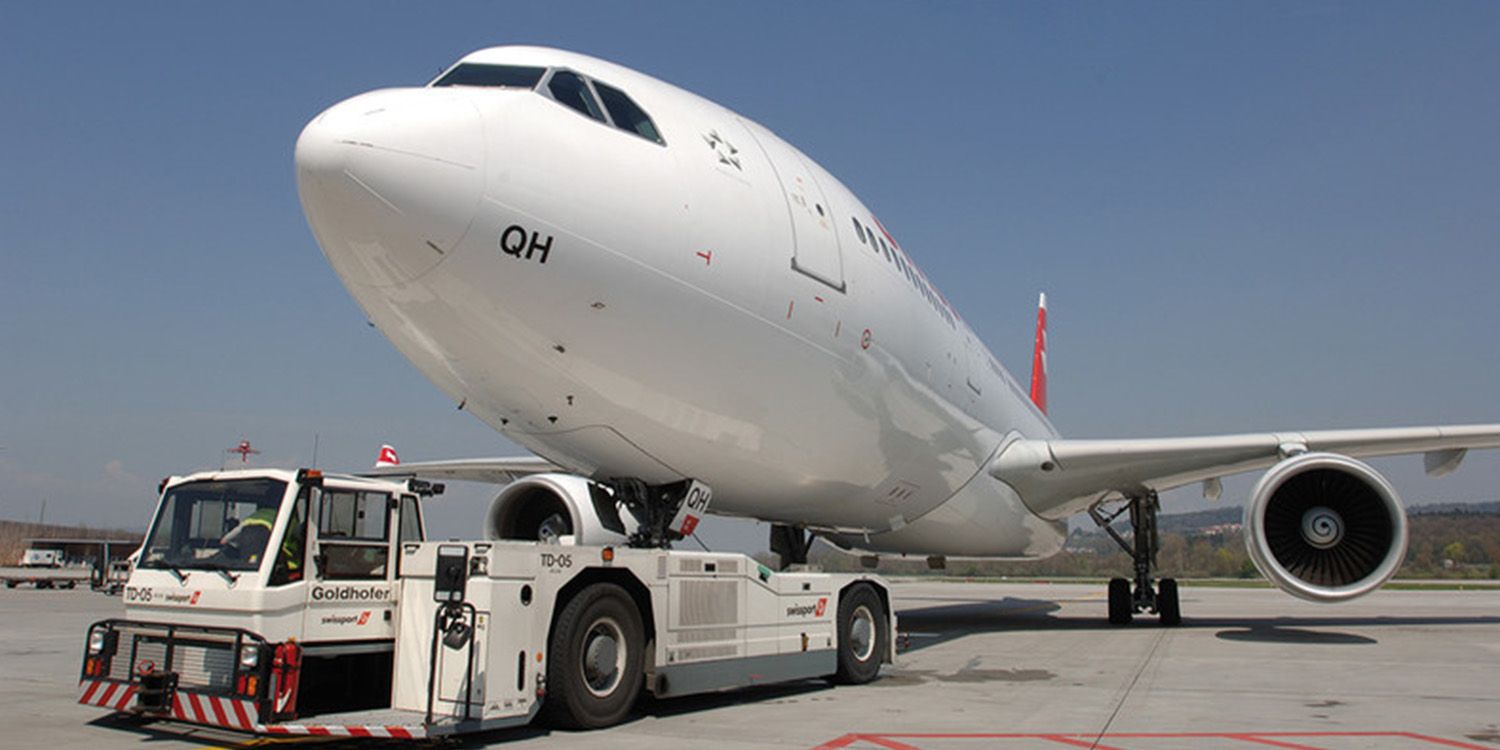
Career ready
Career options are broad as the tourism and aviation industries cover so many potential roles. The knowledge and skills you'll learn on the course will provide a large range of opportunities including various management roles, airline communications, hospitality facilitators, tourism planning and development, destination marketing, and with hotels, travel agents, public bodies, and international tourism companies.
Real-life experience
There are a range of embedded activities on the course including:
- Guest lecturers who bring their vast experience and expertise within the industry
- Field trips which support you in studying and experiencing the industry in action
- Opportunities for a paid work placement (4-year course).
Top-up route
A top-up entry option is available to you if you've already successfully completed a Higher National Diploma (HND) or Foundation degree and wish to progress onto the final year of the honours degree course. Topping up your existing HND or Foundation degree will take one year of full-time study and may open up future career options to you, depending on your chosen career path.
Contact us to find out how you can get credit for your previous learning and top-up your qualification to a range of degrees.
Meet the students
I’ve had supportive lecturers who have equipped me with the skills and knowledge needed to progress Read more -->

Casey Watson
The university allowed me to follow my dreams without any obstacles. Read more -->

Shady El Farra
Meet the team — bsc (hons) tourism and aviation management, related courses.
Contact the Student Helpline for further information about studying at the University of Sunderland: 0191 515 3000 [email protected]
View Programme Specifications for the Faculty of Business, Law and Tourism.
Page last updated: 15 May 2024
We aim to provide clear, accurate and timely information to prospective and current students. We continuously review and enhance course content in consultation with our students and the information provided on our website is the latest available. If you have received an offer from us to start a course, we will communicate any important changes to you in writing. We will always seek to ensure that our prospective students are fully aware of the basis on which they are accepting an offer.

- Undergraduate
BSc (Hons) Tourism and Hospitality Management
Gateway to your destination, the tourism industry is one of the largest job providers both nationally and internationally. this programme is industry-specific and management oriented, and prepares students for positions in the tourism and hospitality sector. it covers a wide range of issues on tourism and hospitality management and includes hands-on work experience acquired over one semester., career prospects.
- Upon completion of the BSc (Hons) Tourism and Hospitality Management programme, graduates will have a wide range of career opportunities to choose from, such as hotels, restaurants, airline companies, travel agents, tour operators as well as in government organizations and in the field of tourism education.
Requirements
- As per UTM ‘Admissions Regulations’ and ‘Admission to Programmes of Study at undergraduate Level’
Tourism and Hospitality Studies
Business communication, food and beverages studies i, foregin languages i (italian or german or spanish or mandarin), practical i (kitchen), marketing for tourism and hospitlaity, principles and practices of management, food and beverages studies ii, foregin languages ii (italian or german or spanish or mandarin), practical ii (restaurant and bar), accommodation management, essentials of statistics , accounting for decision making , hrm for tourism and hospitality , hospitality law , tourism planning and development, tourism reservations and ticketing , facilities planning and design management , tourism economics , sustainable tourism , research methods for tourism and hospitality , services marketing and management, conference and event management , service operations management, outdoor recreation, travel management, environmental management for tourism , disseration.

School Of Innovative Technologies and Engineering (SITE)
School Of Sustainable Development and Tourism (SSDT)
School Of Health Science (SHS)
School Of Business Management and Finance (SBMF)
- Postgraduate
- Short Course
Related Courses

BSc (Hons) in Industrial Biotechnology (Top up)

Diploma in Industrial Biotechnology

BSc (Hons) Financial Services with Global Business
Quick links, student support.
© University of Technology, Mauritius. All Rights Reserved

- School of Innovative Technologies and Engineering (SITE)
- School of Sustainable Development and Tourism (SSDT)
- School of Health Sciences (SHS)
- School of Business, Management and Finance (SBMF)
- Doctoral School
- Research Fields
- Publications
- Funded Projects
PROSPECTIVE STUDENT
Existing student.

Insert/edit link
Enter the destination URL
Or link to existing content
Six trends shaping new business models in tourism and hospitality
As destinations and source markets have changed, tourism and hospitality companies have evolved too. Six key trends have shaped business models in this sector over the past decade.
About the authors
This article is a collaborative effort by Caroline Tufft , Margaux Constantin , Matteo Pacca , and Ryan Mann , with Ivan Gladstone and Jasperina de Vries, representing views from McKinsey’s Travel, Logistics & Infrastructure practice.
In accommodation, asset-light models like franchising and management have proliferated, though luxury and small-scale brands are opting out. Consolidation has driven economies of scale. Hotels are looking to reclaim their relationship with guests, and almost two decades in, home sharing is charting its own course.
In the experiences space, reinvention is the name of the game. Cruises and theme parks have both focused on attracting new demographics while fine-tuning their revenue management strategies. Experiences remains a highly fragmented, legacy sector, creating massive opportunity for those able to crack the code on aggregation.
By considering the six trends, tourism and hospitality companies can gain insights on business practices for today—and on areas of future opportunity.
Accommodation: New models and value propositions
Large hotel brands have increasingly turned away from hotel ownership, scaling their business through franchising and management instead. The move is paying off. We find there is a 0.84 correlation between a hotel company’s share of franchised properties and its net profit margin.
Not all of hospitality is embracing asset-light model, however. Luxury hotel chains have resisted the trend, largely retaining in-house ownership to control standards. And smaller brands may find that they cannot reach the economies of scale that make the math of a franchise business work—focusing instead on creating distinctive experiences on a smaller scale.
Consolidation set the stage for the past decade. Several hotel brands quickly grew their foothold in key geographies and customer segments through strategic acquisitions, achieving economies of scale along the way.
As major hotels take a breather from a series of substantial acquisitions, further mergers between large hotel brands seem unlikely. However, tuck in acquisitions to target key growth demographics, like the luxury and youth categories, are likely to continue.
Another trend on the horizon is direct booking. Long reliant on online travel agencies, hotels are looking to reclaim their relationships with customers—both to cut down on intermediary booking fees and to learn more about their guests. Hotels are encouraging direct bookings through a variety of levers, ranging from best-rate guarantees to higher reward-earnings rates and improved mobile applications. 1 For example, Hyatt offers a best-rate guarantee for booking on hyatt.com and Marriott International is growing direct bookings. For more, see “Marriott sees record direct bookings at its hotels,” Skift, May 4, 2022.
Home sharing is here to stay. The segment has grown from 10 to 14 percent of booking value between 2017 and 2023, experiencing ups and downs in profitability along the way.
Recently, home sharing has positioned itself as more than a stand-in for traditional hotels. Airbnb’s recent advertising campaign “Get an Airbnb” leaned into the differences of home sharing from other hospitality offerings, emphasizing the space and privacy that renting a house can offer. 1 Samantha Shankman, “‘Get an Airbnb’ campaign challenges hotels,” Skift, August 30, 2023.
Home-sharing companies have also become a key distribution channel for smaller hotels, as they can offer more control over inventory and lower fees than other channels. In 2019, Airbnb reported a 152 percent increase in the number of rooms available for booking through its platform in boutique hotels, bed and breakfasts, and resorts. 2 “More hotels are using Airbnb,” Airbnb news release, January 16, 2019.
Experience providers: New segments and revenue streams
Cruises may only account for 2 percent of the overall travel and tourism market, but they have achieved 6 percent yearly revenue growth in the past decade. 1 McKinsey analysis of publicly listed tourism and hospitality companies’ Form 10-Ks. Attracting new travelers and providing new experiences have been key growth strategies.
Luxury hotels are capturing the new-to-cruising segment with the launch of yacht brands, purposefully positioned as a distinct experience from traditional cruises. Meanwhile, millennials are challenging stereotypes about cruising: of all cruise passengers, they are the demographic most likely to say they plan to cruise again (88 percent). 2 State of the cruise industry 2023: September 2023 update, CLIA, September 2023.
In parallel, cruises have fine-tuned their profitability through economies of scale and new revenue streams. Megaships have become the new normal, as ships with over 3,000 berths have grown from 27 to 47 percent of the global cruise fleet since 2015. Ancillary purchases such as onshore excursions and onboard casinos have also become a major source of growth, now accounting for 30 percent of revenue on average. 3 Calculated using the weighted average based on 2023 Form 10-Ks statements of publicly listed cruise companies.
Theme park attendance has grown 3 percent a year over the past decade, as theme park providers capitalize on new demographics and refine their revenue management strategies. 1 Global attraction attendance report , joint report from AECOM and Themed Entertainment Association, 2019.
Two new groups of visitors in particular are powering growth. First, the Asia–Pacific region accounted for much of the growth in theme park attendance in the past decade: of the total number of new visitors between 2013 and 2018, 57 percent were from Asia. Second, millennials are heading to parks in greater numbers, and not just for their children. A similar proportion of millennial parents (78%) and millennial nonparents (75%) say they are interested in going to a theme park. 2 Morning Consult survey, 2,201 participants, June 14–19, 2018.
To increase value from growing attendance, theme parks have become increasingly sophisticated in the field of revenue management. Demand-based pricing, tiered annual passes, and skip-the-line fees are all poised to go from pioneering to widespread practices.
Experiences are increasingly important to travelers, but the segment remains a highly fragmented space. Operators of activities ranging from walking tours to snorkeling outings tend to be small businesses with a limited digital presence.
This has created an opportunity for tech-forward companies to help travelers discover and book experiences. Destination marketing organizations have long played a role in this. For instance, VisitScotland helps visitors discover interesting activities like attending Harry Potter filming locations and whiskey tastings.
Several private companies that offer online discovery and booking platforms for travel activities, like Viator, GetYourGuide, and Klook, have achieved considerable growth in the US, European, and Asian markets. 1 Yeoh Siew Hoon, “GetYourGuide gets into pole position to win in $250b experiences market,” WIT, September 20, 2023. GetYourGuide grew its revenue fourfold between 2022 and 2023, Viator revenue was up 49 percent for the same time period, and Klook reported twice as many new customers in 2023 as in 2019. 2 “Klook completes US$210 million funding, embarks on a new era of profitable growth,” Klook news release, December 6, 2023; Mitra Sorrells, “With speculation of a sale in the air, Tripadvisor reports record revenue driven—again—by Viator,“ Phocus Wire, February 14, 2024.
Looking forward: Strategies to stay ahead of the curve
Where does this leave tourism and hospitality companies? Companies in any given sector tend to follow a power law curve : a small share of companies account for an outsize portion of both profits and losses. The tourism and hospitality sector is no different.
Over the past decade, publicly listed accommodation and experience providers grew revenue at 3 percent and 4 percent, respectively, roughly in line with global GDP growth. Accommodation providers increased their profits by five percentage points, while experience providers remained at an 18 percent average profit margin.
As stakeholders gear up for the next decade, there are things that businesses across the sector can do to sustain their hard-won growth—and profits. Moving forward, three strategies in particular can help tourism and hospitality companies stay on the leading edge of innovation.
Unbundle offerings
Hotel and experience providers can take a page from the airline playbook by unbundling rates and letting consumers pay for the exact experience they want. For example, at the time of booking, hotels can present guests with an individually priced bundle for a room on a higher floor, including breakfast and free parking—features that the guest’s past behavior suggests they would particularly value. Ensuring that guests can find their ideal room can lead both to increased revenue and increased satisfaction. A major hotel brand reported that guests chose to spend an additional $22 per night, on average, to customize their hotel room to their liking. 1 “IHG Hotels & Resorts revolutionizes booking experience through next-gen cloud solutions,” InterContinental Hotels news release, September 12, 2023.
Cross-sell exclusive experiences
For accommodation and transportation companies, partnering with experience providers to cross-sell a full journey provides an opportunity to tap into a growing area of traveler spending—and a chance to deepen the relationship with customers as a vacation creator. For example, airlines can partner with museums to offer discounted rates if booked at the time of the flight, or hotels can partner with a historical site nearby to offer early-hours admission. For uptake rates to become significant, the partnership needs to add value beyond mere cross-selling. Offering features like insurance or an option to buy now and pay later is one way to add value; creating a distinctive experience like a combined train and historic hotel journey is another.
Embrace a data-powered strategy
Tourism and hospitality entities individually hold a treasure trove of untapped data. Take Paris: hotels may see a surge in bookings for the “shoulder season.” Experience aggregator platforms might see that street food tours have attracted rising interest. Social media might reveal that a particular neighborhood is exploding in popularity. What special guest experiences could be created by combining these insights? Stakeholders can unlock new revenue streams by thinking through what data they hold that can be of value to others. More broadly speaking, combining multiple sources of data can help guide a strategy of unbundling and cross-selling to create more gratifying and pertinent experiences for travelers around the world. Embracing data isn’t just smart—it’s the future of travel.
Caroline Tufft is a senior partner in McKinsey’s London office, Margaux Constantin is a partner in the Dubai office, Matteo Pacca is a senior partner in the Paris office, Ryan Mann is a partner in the Chicago office, Ivan Gladstone is an associate partner in the Riyadh office, and Jasperina de Vries is an associate partner in the Amsterdam office.
The authors wish to thank Abdulhadi Alghamdi, Alessandra Powell, Alex Dichter, Cedric Tsai, Diane Vu, Elisa Wallwitz, Lily Miller, Maggie Coffey, Nadya Snezhkova, Nick Meronyk, Paulina Baum, Peimin Suo, Rebecca Stone, Sarah Fellay, Sarah Sahel, Sophia Wang, Steffen Fuchs, Steffen Köpke, Steve Saxon, and Urs Binggeli for their contributions to this article. The authors also wish to thank Mabrian for providing data.
Explore a career with us
Related articles.

How the world’s best hotels deliver exceptional customer experience
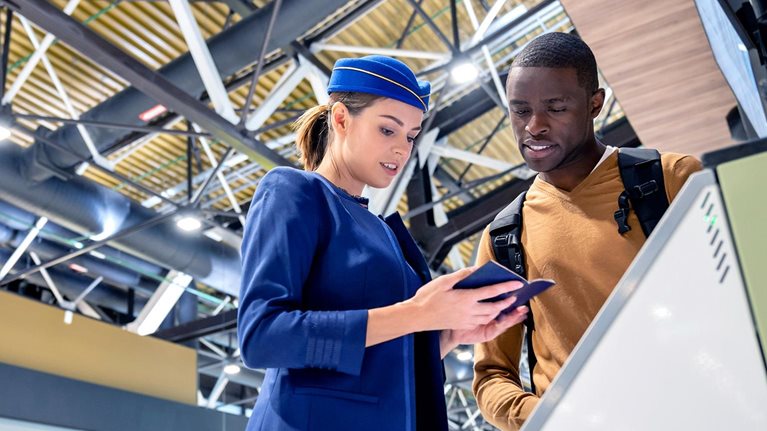
What AI means for travel—now and in the future

IMAGES
VIDEO
COMMENTS
B.Sc in Airlines, Tourism and Hospitality Management colleges include Sai Nath University in Ranchi, Lovely Professional University in Jalandhar, Chandigarh University etc. The average annual fees for the B.SC. Airlines tourism and hospitality management is between INR 10,000-5,00,000. Graduates with good marks can choose to work in Aviation ...
Category III cut-off. Tentative cut-off is 150 out of 400 marks. B.Sc. In Airlines, Tourism And Hospitality From India's Top Ranked Colleges/ University In Punjab - LPU. Explore course details, syllabus, eligibility, fees, career option & start your career as a operations manager etc.
The average B.Sc. in Airline Tourism and Hospitality Management course fee offered by these institutes are up to INR 5 Lacs and the profiles offered to students ranges from Customer care executive, tour operator, tour manager, customer relation manager etc.
LPU Bachelor of Science [B.Sc] (Airlines, Tourism and Hospitality Management) Ranking LPU Management ranking by NIRF is 32 out of 125 in India in 2023 and it was ranked 34 out of 125 in India in 2022.
B.Sc Airlines, Tourism and Hospitality Management or Bachelor of Science in Airlines, Tourism and Hospitality Management is a full-time three-year undergraduate degree program. This hospitality course consists of planning, studying, managing, and providing housing, recreation, food, habitation, entertainment, convenient transport, and tourist services, as well as any connected support solutions.
B.Sc Airlines, Tourism, and Management Admission 2021, Top Colleges & Syllabus . B. Sc. in Airlines, Tourism, and Management is the 3 years long full-time undergraduate programme which enables the students to learn about the fundamentals of airlines, tourism, and management. The course consists of 6 semesters with each semester spreads over a period of 6 months.
Projects for B.Sc Airline Tourism & Hospitality Management. In a B.Sc Airline, Tourism & Hospitality Management program in India, students are typically required to complete a project or internship as part of their academic requirements. These projects allow students to apply their knowledge and skills gained throughout the course to real-world scenarios in the industry.
Know all about BSc in Airlines & Airport Management course details, syllabus, colleges, career options and salary scope at CollegeDekho. 1800-572-9877; ... (Bhutan) and studied B Sc Airlines Tourism & Hospitality program at LPU has one of the only simulation aeroplane labs in North India to train students. Live Projects : Hands-on experience by ...
International students. Our tuition fee for UK students starting full-time undergraduate study in 2024/25 is £9,250 per year. These fees are regulated by the UK government and are therefore subject to changes in government policy. During your placement year you will pay a reduced fee of £1,200.
The practical requirements of the courses are completed at the university's hotel, the University Club. Freshman Year—34 Credit Hours. Sophomore Year—30 Credit Hours. Junior Year—29 Credit Hours. Tourism and Hospitality Internship (3.5 months/576 Hrs.) January - April. Senior Year—30 Credit Hours.
Career Paths after B.Sc Airline Tourism & Hospitality Management. Airport Manager: Graduates can pursue careers as airport managers, responsible for overseeing airport operations, passenger services, and security. Airline Manager: Airline managers manage airline operations, including flight scheduling, customer service, and safety compliance.
At Flyway Hotel Management Institute, our B.Sc. in Airline Tourism and Hospitality Management program is a comprehensive 3-year course that focuses on equipping students with the necessary skills for effective management in the tourism and airline industry. Our curriculum covers fundamental aspects of tourism, management principles, and ...
Surrey has nearly 60 years' experience of training leaders in travel, tourism and hospitality and the School of Hospitality and Tourism Management is an Institute of Travel and Tourism (ITT) Centre of Excellence. ... International Airline and Airport Management BSc at Surrey has been built with your employability in mind so you can take off ...
(1). About the B.Sc Airline Tourism & Hospitality Management. B.Sc in Airlines, Tourism & Hospitality Management is a three-year course to be had for applicants who've finished their 12th. This application will educate college students in air visitor control, aviation maintenance, air provider operations, airline operations, and different airline operations.
In the Graduate Outcomes survey 2023, results show that 94 per cent of our undergraduate Hospitality & Tourism Management School students go on to employment or further study. Recent BSc (Hons) International Hospitality and Tourism Management graduates have secured roles such as: Graduate Management Trainee, Hilton Worldwide
B.Sc Hospitality and Travel syllabus covers different modules such as management, marketing, hospitality, hotel management, customer service management, and tourism. The syllabus varies from college to college. Some of the subjects which are offered in almost all the institutions have been given below: Semester 1.
All students are required to submit a research project in any area related to hospitality and tourism as a final requirement to attaining the degree. BSc in Hospitality Management (BHM) has the following core subjects of specialization: Food and Beverage Production I, II and III. Food and Beverage Service I and II. Food and Beverage Management.
This BSc Tourism and Hospitality Management programme prepares individuals to become professionals with the required knowledge, skills and competencies to function effectively in the workplace. The programme is designed to offer individuals: • Outstanding academic and professional development needed by individuals employed or aspiring to be ...
BSc in Travel & Tourism Management. Save; Request a callback; Ask us; Try Our College Finder Check Eligibility. Overview; Popular Colleges; Written By Anjani Chaand. Mar 13, 2023 19:31PM IST. ... B.Sc. Airlines, Tourism & Hospitality and BA in Management of Tourism Business in Travel & Tourism Management.
Tourism and Aviation Major Project (40 credits) Design and implement a research proposal in an area of tourism or aviation management of your choice. Set aims and objectives, select and implement research methods, conduct a literature review, collect empirical data and analyse appropriately.
The tourism industry is one of the largest job providers both nationally and internationally. This programme is industry-specific and management oriented, and prepares students for positions in the tourism and hospitality sector. It covers a wide range of issues on tourism and hospitality management and includes hands-on work experience acquired over one semester. The programme aims at ...
Annamal Institute of Hotel Management - Avadi. location_on No. 206, Nehru Bazar Road, Near Railway Station, Next to Register Office, Avadi, Chennai, Tamil Nadu . call phone_iphone 9566003413, 9566122249
Cruises may only account for 2 percent of the overall travel and tourism market, but they have achieved 6 percent yearly revenue growth in the past decade. 1 McKinsey analysis of publicly listed tourism and hospitality companies' Form 10-Ks. Attracting new travelers and providing new experiences have been key growth strategies.